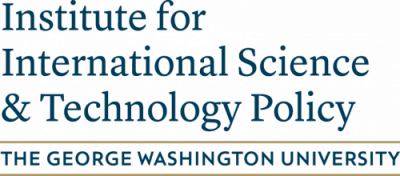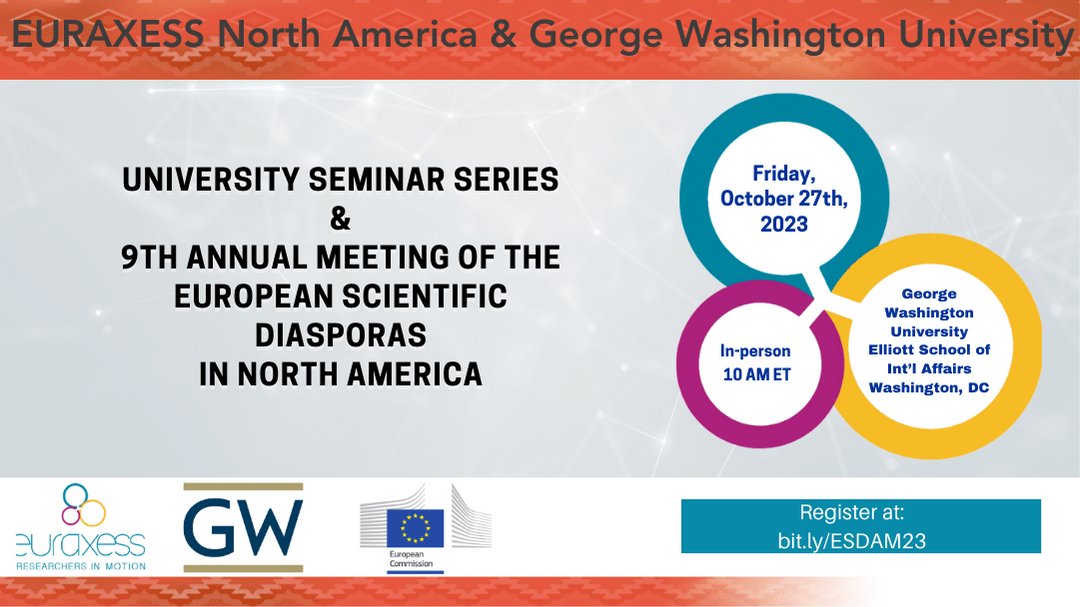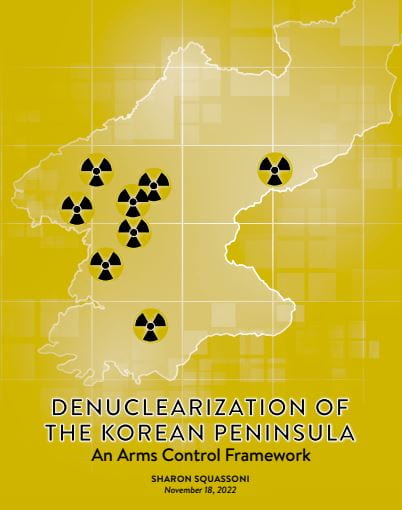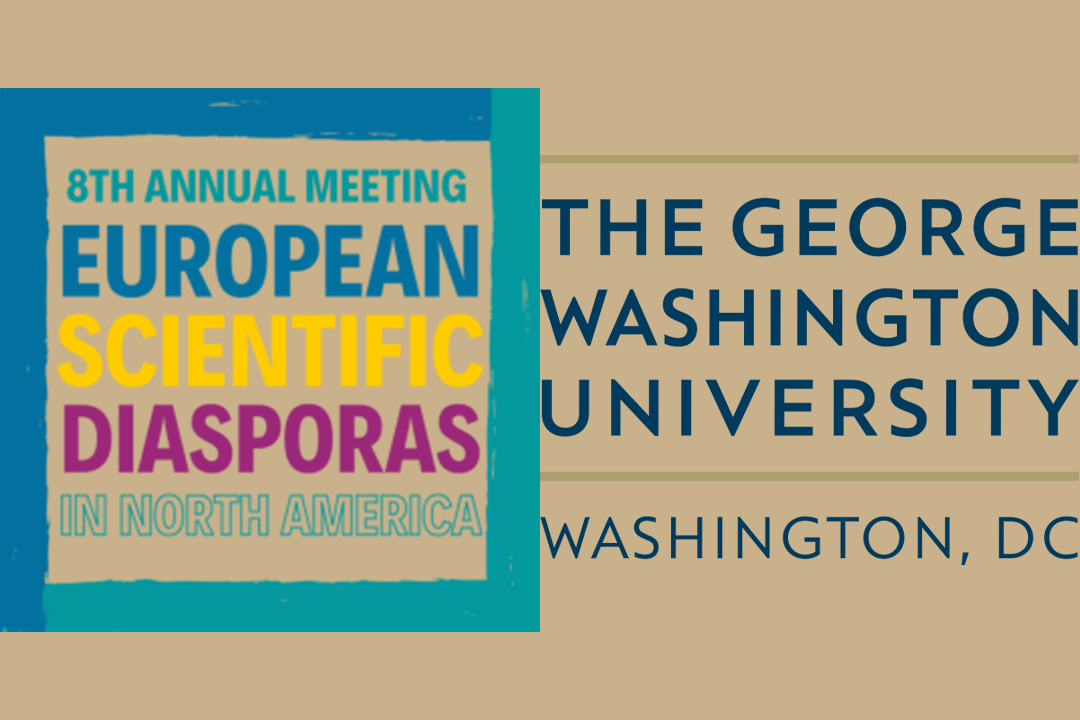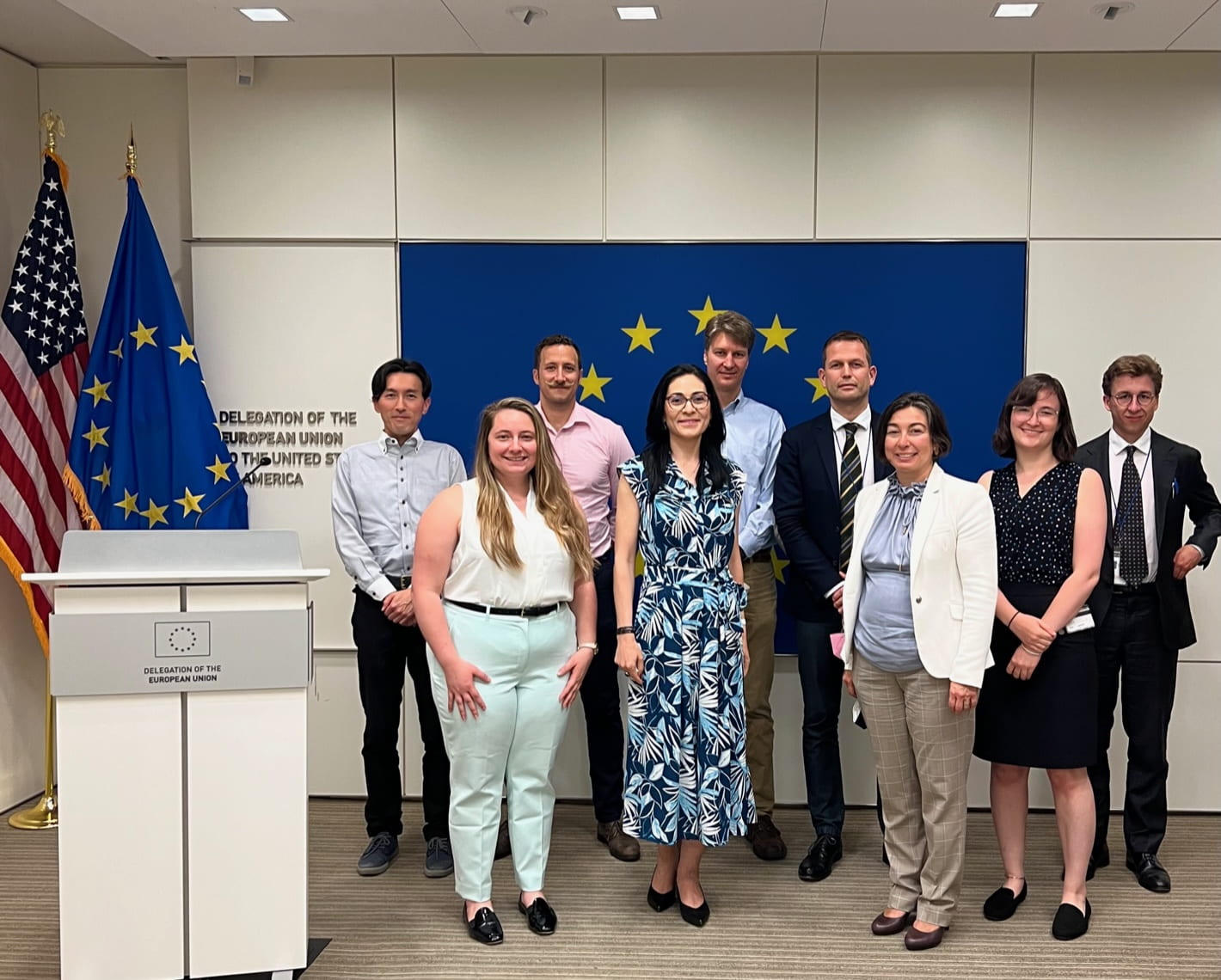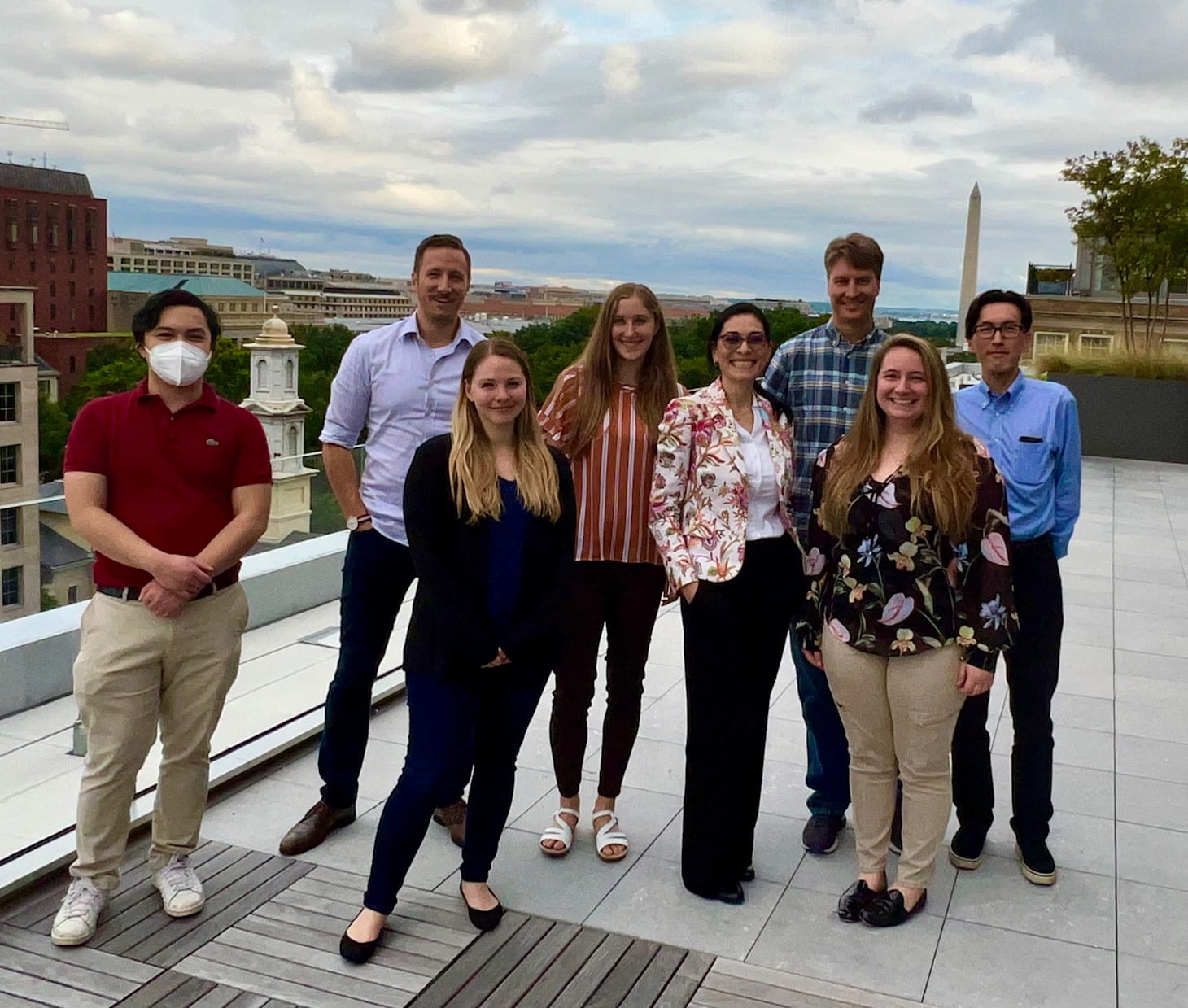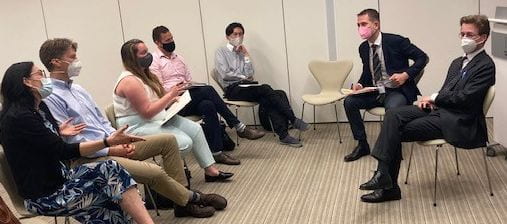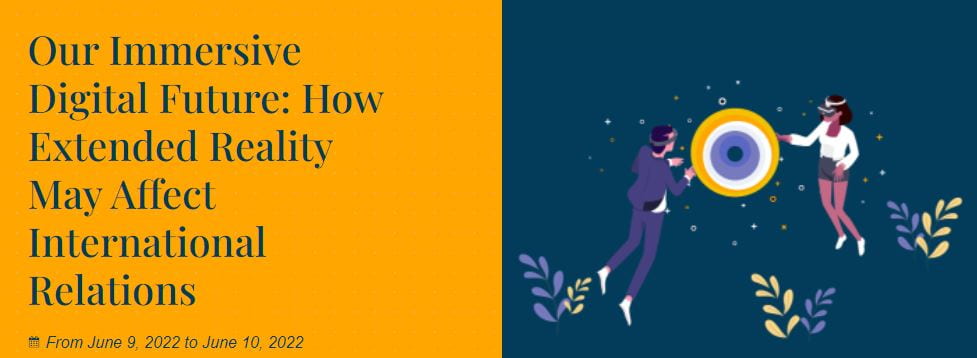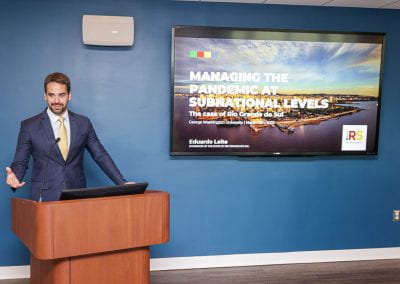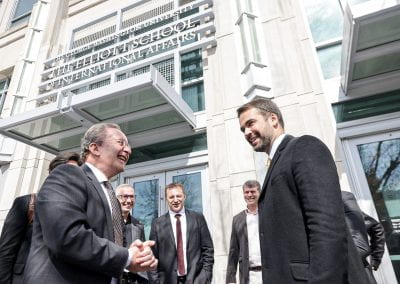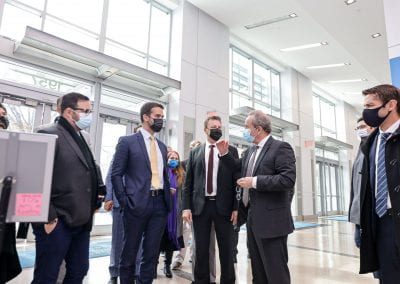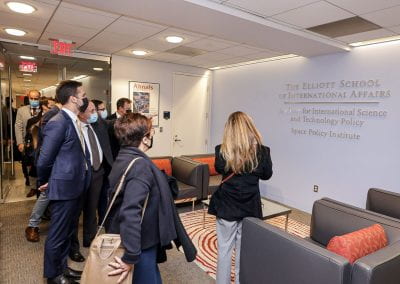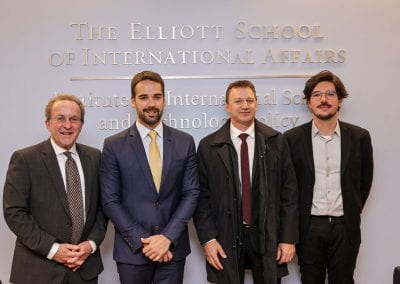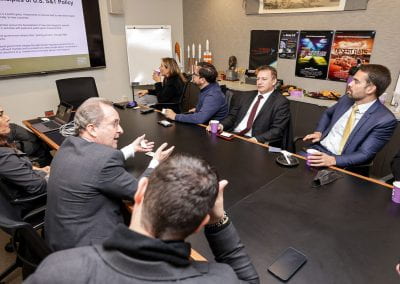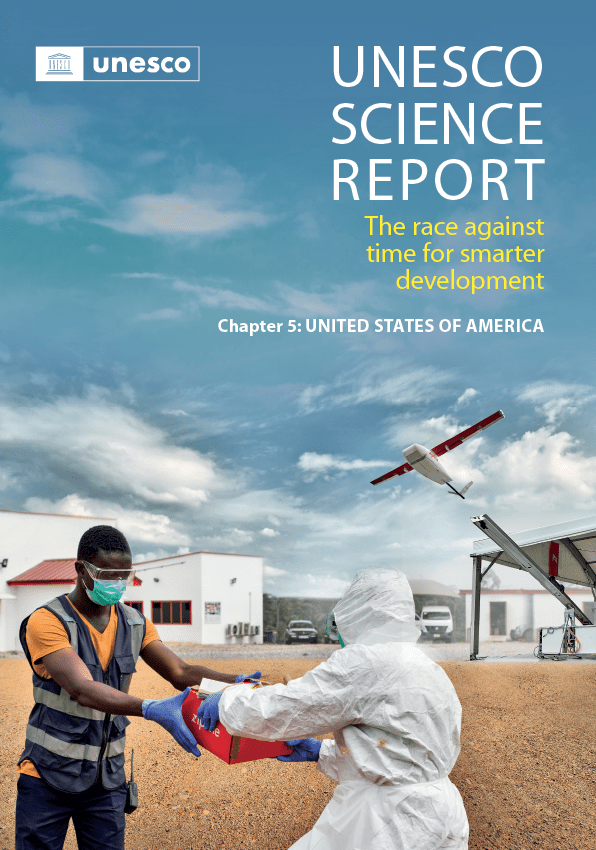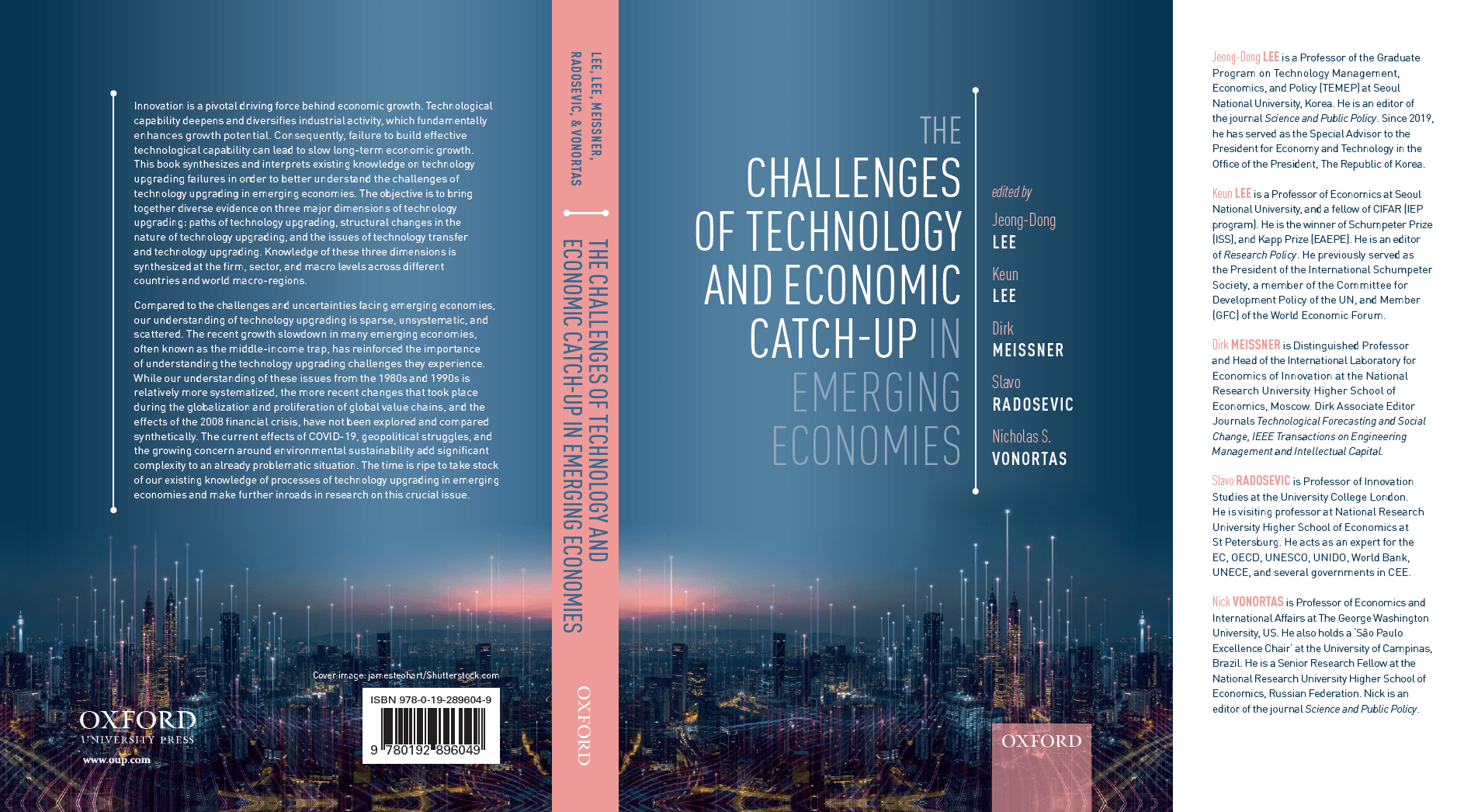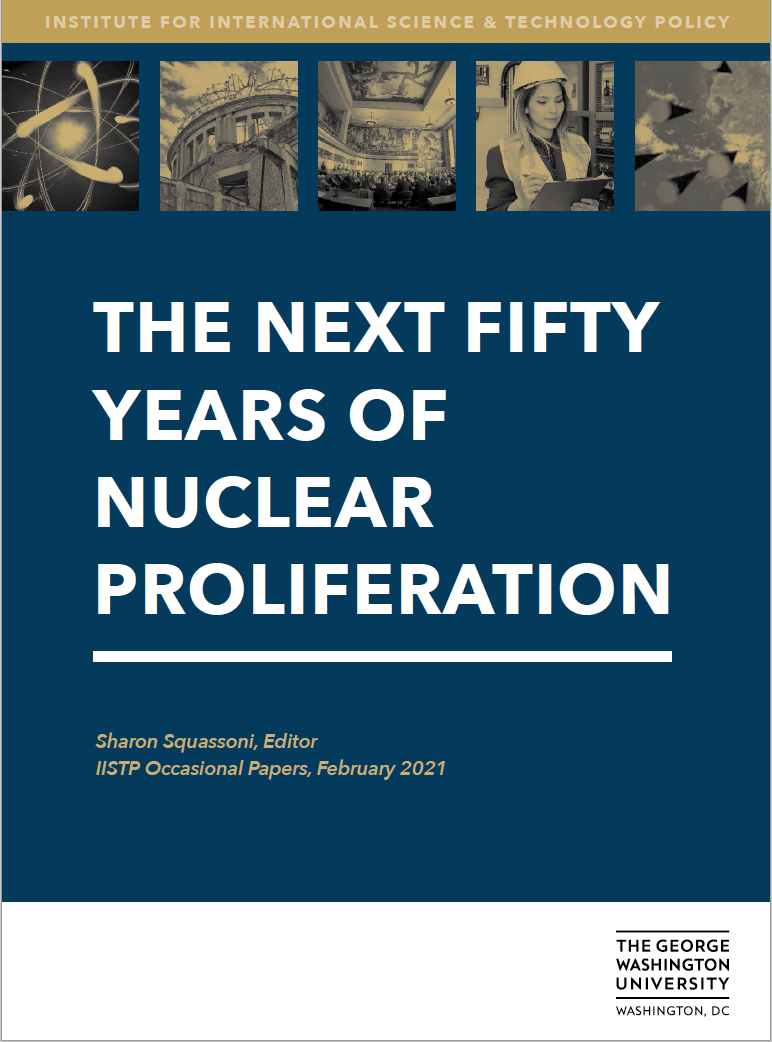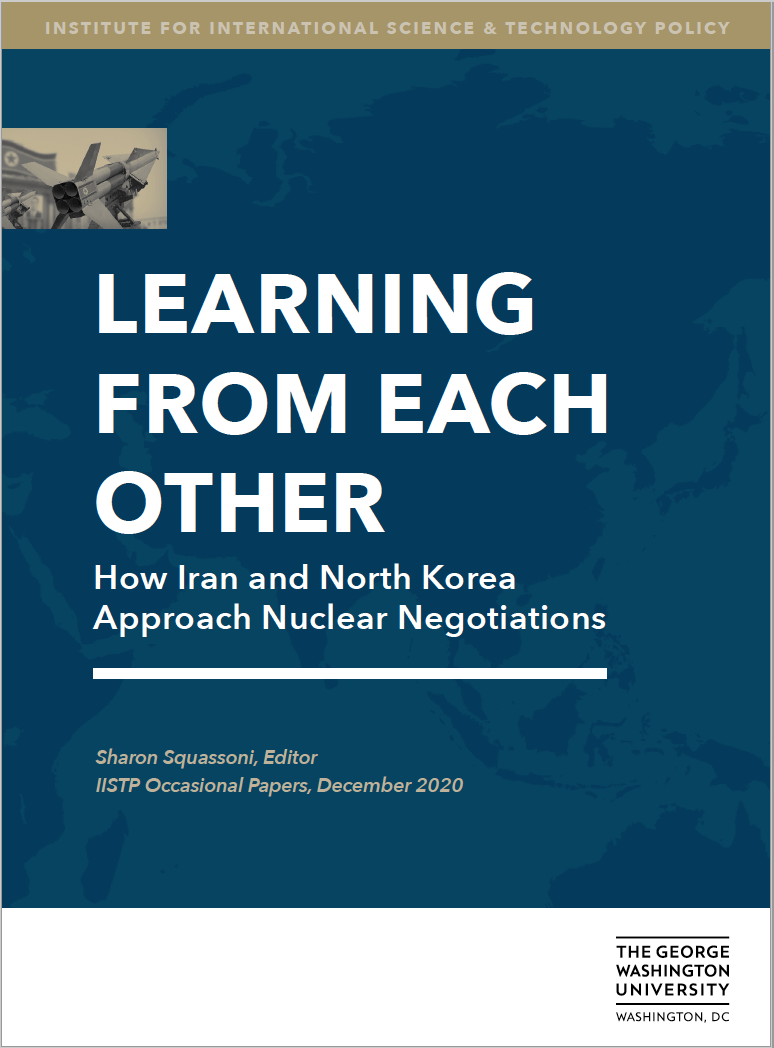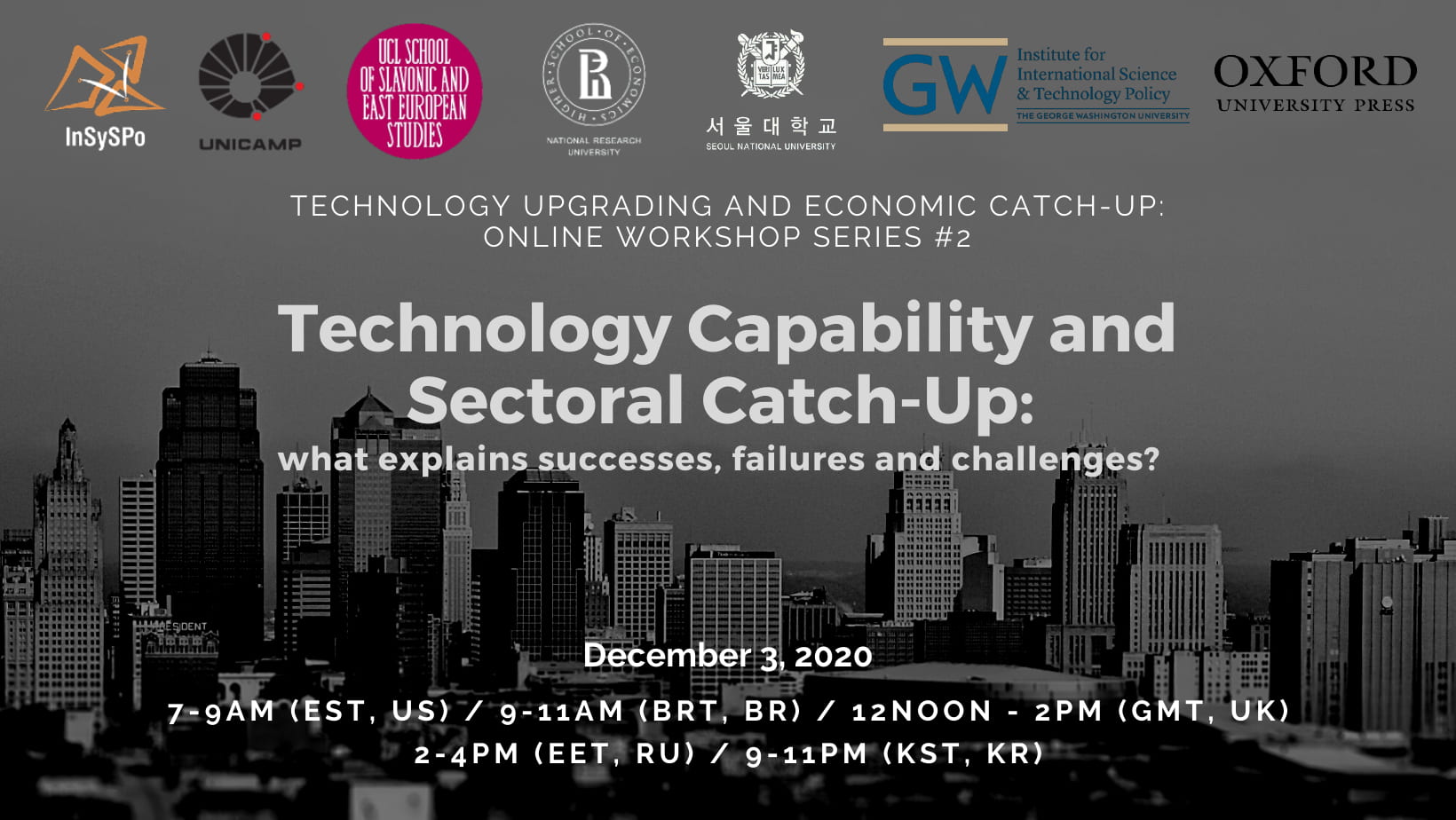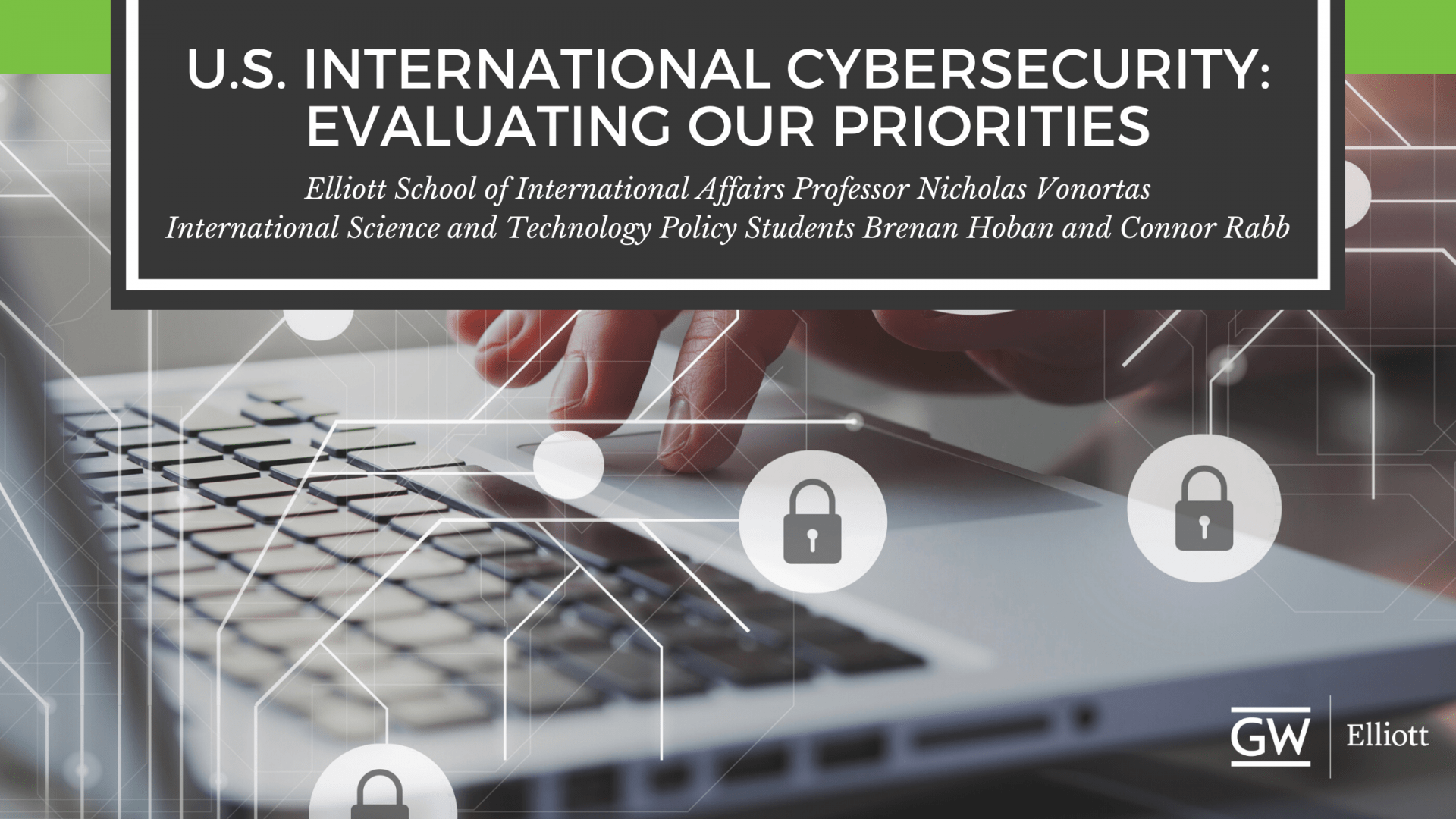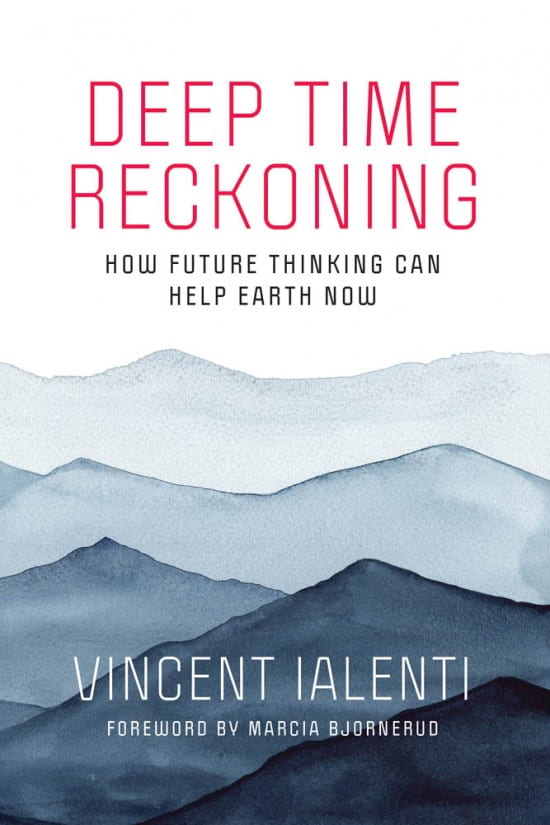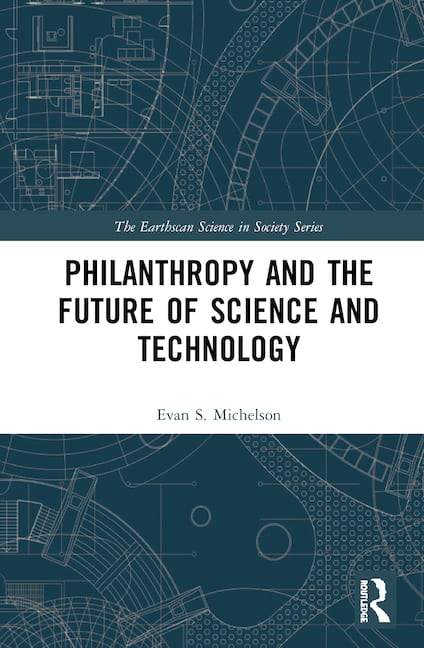
Data Analytics for Policy Professionals
Data Analytics for Policy Professionals (DAPP) is an executive education program that aims to bridge the gap between data science and traditional analysis in international affairs and public policy. Broadly speaking, our goal is to take the lead in providing our current and future policymakers with the modern analytic tools they need to revolutionize policy in information-rich environments. By empowering policy professionals to harness their organization’s data, we can help them to improve the flow of their daily operations, deepen their understanding of policy, and provide evidence-based recommendations for best policy practices.
Course Line-Up for Spring 2024:
- Jan: Mapping Data: GIS for Presentations, with Dr. Adam Wunische
- Feb: Creating Data Rich Reports, with Dr. Emmanuel Teitelbaum
- March: Research & Data 101, with Dr. Leonardo Antenangeli and Dr. Laila Sorurbakhsh
- April: Communicating Data with Web Apps, with Dr. Emmanuel Teitelbaum
- May/June: Survey Design for Public and International Policy, with Dr. Eric Kramon
- June: Data Visualization Using Tableau, with Dr. Paul Albert
All courses also include our keynote speaker and networking event on Friday 5/3, 5:30 – 8:30 pm. The DAPP website provides specific dates/times and application deadlines.
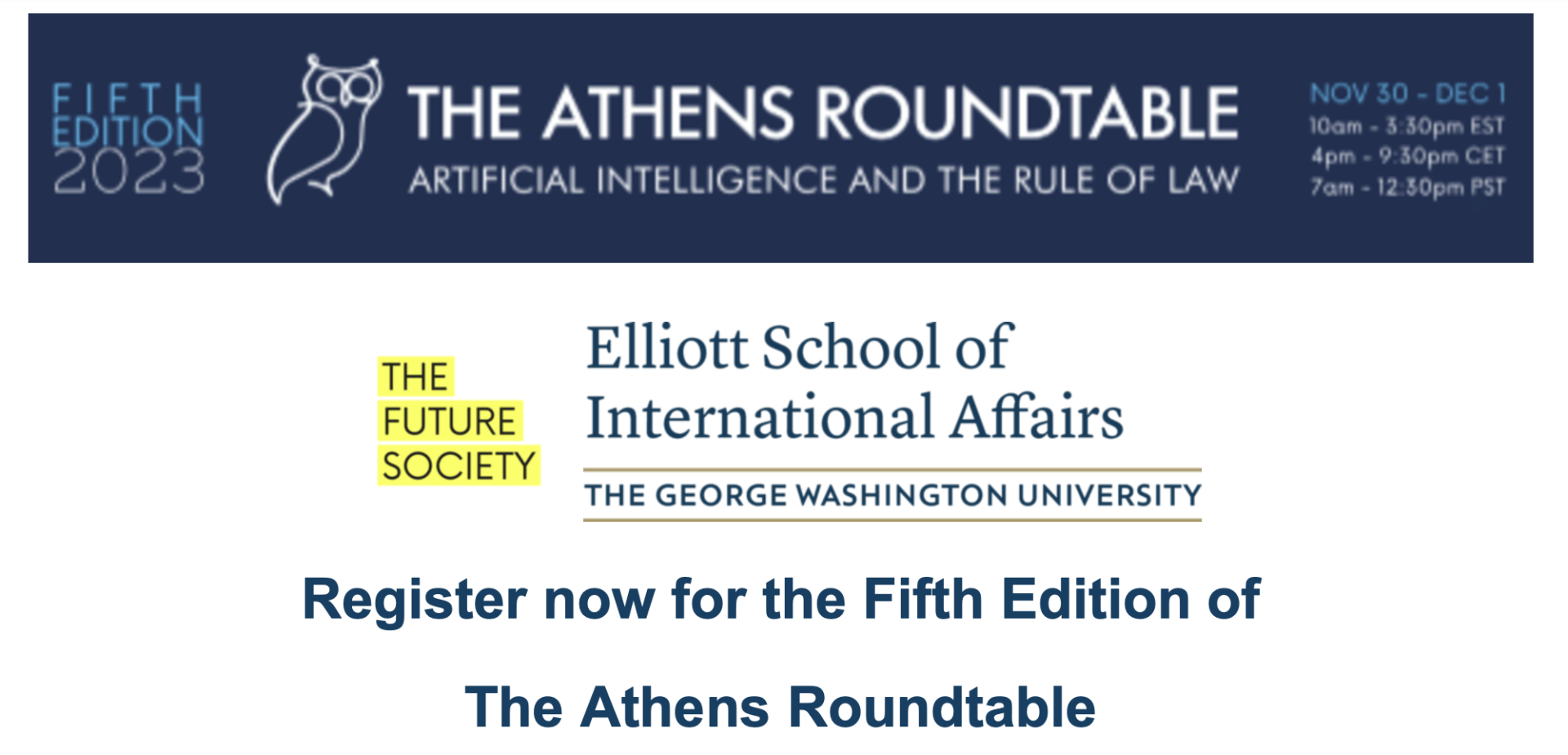

Times
EST | 10am – 3:30pm
CET | 4pm – 9:30pm
PST | 7am – 12:30pm

Format
Online | Zoom Events
In-person | Jack Morton Auditorium
(805 21st St NW, Washington, D.C.)
- Discuss a comprehensive approach to the governance of generative AI and foundation models, encompassing safety assessments, security measures, and regulatory strategies from development to deployment.
- Examine how international coordination and institutional innovation can address geopolitical and market pressures in AI governance while upholding fundamental rights.
Teaming Up: Leveraging Networks towards a Stronger Global Approach to Research and Innovation Science.
This is the third activity of the GWU Seminar Series on Science Diplomacy and the Ninth Annual Meeting of the European Scientific Diasporas in North America
Friday, October 27, 2023 | 10:00AM EDT

Nuclear Ethics
Wednesday, October 18, 2023
12:30-2:00 p.m.
Room 505 (Elliott School of International Affairs)
Light refreshments will be served. This event is on the record and open to the press.
Join the Institute for International Science and Technology Policy for a discussion with Stanford University Professor Scott Sagan and Nuclear Threat Initiative President Joan Rohlfing.
The Institute for International Science and Technology Policy is pleased to host a discussion with two nuclear experts on the topic of “Nuclear Ethics.” Scott Sagan and Joan Rohlfing authored articles published in the Spring 2023 issue of Ethics & International Affairs, revisiting the topic of Harvard Professor Joe Nye’s 1986 book, Nuclear Ethics. “Just and Unjust Nuclear Deterrence” by Sagan and “The Myth of ‘Just’ Nuclear Deterrence: Time for a New Strategy to Protect Humanity from Existential Nuclear Risk” by Rohlfing can be found here.
Speakers
Scott D. Sagan is Co-Director and Senior Fellow at the Center for International Security and Cooperation, the Caroline S.G. Munro Professor of Political Science, and the Mimi and Peter Haas University Fellow in Undergraduate Education. He also serves as Chairman of the American Academy of Arts and Sciences’ Committee on International Security Studies. Before joining the Stanford faculty, Sagan was a lecturer in the Department of Government at Harvard University and served as special assistant to the director of the Organization of the Joint Chiefs of Staff in the Pentagon.
Sagan is the author of Moving Targets: Nuclear Strategy and National Security (Princeton University Press, 1989); The Limits of Safety: Organizations, Accidents, and Nuclear Weapons (Princeton University Press, 1993); and, with co-author Kenneth N. Waltz, The Spread of Nuclear Weapons: An Enduring Debate (W.W. Norton, 2012). He is the co-editor of Learning from a Disaster: Improving Nuclear Safety and Security after Fukushima (Stanford University Press, 2016) with Edward D. Blandford; co-editor of Insider Threats (Cornell University Press, 2017) with Matthew Bunn; and co-editor of The Fragile Balance of Terror (Cornell University Press, 2022) with Vipin Narang. Sagan was also the guest editor of a two-volume special issue of Daedalus: Ethics, Technology, and War(Fall 2016) and The Changing Rules of War (Winter 2017).
In 2022 Sagan received the Thérèse Delpech Memorial Award from the Carnegie Endowment for International Peace, an award given for “exceptional service to the nongovernmental nuclear policy community.” He received the 2018 Andrew Carnegie Fellowship from the Carnegie Corporation of New York. In 2017, he received the International Studies Association’s Susan Strange Award which recognizes the scholar whose “singular intellect, assertiveness, and insight most challenge conventional wisdom and intellectual and organizational complacency” in the international studies community. Sagan was also the recipient of the National Academy of Sciences William and Katherine Estes Award in 2015, for his work addressing the risks of nuclear weapons and the causes of nuclear proliferation. The award, which is granted triennially, recognizes “research in any field of cognitive or behavioral science that advances understanding of issues relating to the risk of nuclear war.” In 2013, Sagan received the International Studies Association’s International Security Studies Section Distinguished Scholar Award. He has also won four teaching awards: Stanford’s 1998-99 Dean’s Award for Distinguished Teaching; Stanford’s 1996 Hoagland Prize for Undergraduate Teaching; the International Studies Association’s 2008 Innovative Teaching Award; and the Monterey Institute for International Studies’ Nonproliferation Education Award in 2009.
Joan Rohlfing is president and chief operating officer of the Nuclear Threat Initiative (NTI). She provides overall leadership and guidance on NTI’s strategic priorities and direction, catalyzes new project activities and innovation work streams and is responsible for managing NTI’s day-to-day operations.
Rohlfing became president and chief operating officer of NTI in January 2010, after nine years as NTI’s senior vice president for programs and operations. She is responsible for managing all NTI programs and operations.
She was part of the original team that created the mission and scope for NTI in 2000. Once the organization launched in 2001, she played strategic roles in several of NTI’s hallmark projects such as the formation of the World Institute for Nuclear Security, the creation of the Middle East Consortium on Infectious Disease Surveillance and the Nuclear Security Project led by former Secretary of State George P. Shultz, former Secretary of Defense William J. Perry, former Secretary of State Henry A. Kissinger and former Senator Sam Nunn in their effort to galvanize global action to reduce urgent nuclear dangers and build support for reducing reliance on nuclear weapons, ultimately ending them as a threat to the world.
Before joining NTI, she held senior positions with the U.S. Department of Energy during the Clinton Administration, as senior advisor for national security to the Secretary of Energy and as director of the Office of Nonproliferation and National Security. In 1999-2000, after the nuclear tests in India and Pakistan, Rohlfing served at the U.S. Embassy in New Delhi, India where she advised the ambassador on nuclear security issues. Earlier, she served as a professional staff member of the U.S. House Armed Services Committee. Rohlfing began her career in the Office of the Secretary of Defense, where she was awarded a Presidential Management Internship and later worked in the office of Strategic Forces Policy.
Rohlfing holds a master’s degree from the University of Maryland and a bachelor’s degree from the University of Illinois. She was awarded the Department of Defense Civilian Service Medal in 1989. In 2011, the University of Maryland School of Public Policy gave her the Distinguished Alumnus of the Year Award, citing her career in public service.
Rohlfing is a Gender Champion in Nuclear Policy and a member of the Council on Foreign Relations.
Douglas Shaw (Moderator) is a Senior Advisor at the Nuclear Threat Initiative and a Research Professor of International Affairs at the George Washington University’s Elliott School of International Affairs.
Comparing AI Regulatory Models: A Discussion With Professor Anu Bradford
Wednesday, August, 9, 2023 | 11AM-12PM EDT | Online
Despite their desire to nurture various forms of AI, many of the world’s policymakers are ready to regulate AI risks as well as business practices. On August 9, at 11:00 am EDT, the Hub will host a discussion of Anu Bradford’s new book Digital Empires: The Global Battle to Regulate Technology. Professor Bradford examines three competing regulatory approaches—the American market-driven model, the Chinese state-driven model, and the European rights-driven regulatory mode. She also explores how governments and tech companies navigate the inevitable conflicts that arise when these regulatory approaches collide in the international domain. Professor Bradford will speak for 15 minutes, Dr. Patrick LeBlond from the Graduate School of Public and International Affairs, University of Ottawa will provide ten minutes of comments, and then we open the floor to your questions.
Please register to receive you link to join the webinar.

Webinar: Let’s Make Virtual Worlds More Livable – Ideas to Prevent Metaverse Harms
Thursday, July 20th, 2023 | 12PM-1PM EDT
Register to receive your link to join the event.
The metaverse does not exist, yet policymakers in the EU and South Korea, for example, have drafted strategies, made significant investments, and already debated potential rules. However, the technologies, platforms, and tools to make these virtual worlds are already in wide use. In this webinar, Shannon Pierson of the Minderoo Centre for Technology and Democracy, Cambridge University, will present her report on potential harms in the metaverse and how they can be addressed. Pierson focuses on the key technology –extended reality (XR) examining related issues of governance, human rights, and cybersecurity. Dr. Louis Rosenberg, XR pioneer and CEO of Unanimous AI, will comment on the paper and then, as always, we will open it up for audience questions.
IISTP Professor Jeffrey Ding co-authors article for Foreign Affairs:
The Illusion of China’s AI Prowess Regulating AI Will Not Set America Back in the Technology Race.
International Association of Privacy Professionals (IAPP) Global Privacy Summit 2023: A Student Perspective
In the spring of 2023, ISTP MA candidate Ashley Schuett attended the IAPP Global Privacy Summit and authored a student summary with analysis on the action and import of the summit:
The IAPP Global Privacy Summit: A Snapshot of Current Privacy Issues
The International Association of Privacy Professionals (IAPP) Global Privacy Summit was held in Washington, D.C., on April 4-5, 2023, and was attended by privacy professionals, policymakers, regulators, and academics from all over the world. I was able to attend thanks to a generous grant from ISTP.
The first thing that caught my attention was the commercialization of privacy. The event looked similar to any big tech conferences. Which contrasted with what I normally experience in settings that focus on the privacy of technology, a niche concern. Instead, there were many booths set up to sell products to help companies stay in compliance with new privacy legislation. Among other companies trying to sell privacy products.
Beyond the booth floor the conference provided an opportunity to discuss the most pressing privacy issues and concerns of today, including intimate privacy, enforcement, obstacles, AI governance, a cookie-less world, and data protection. This article will highlight some of the current conversations on these topics.
Intimate Privacy as a Moral and Legal Right
Danielle Citron, the author of “The Fight for Privacy: Protecting Dignity, Identity and Love in the Digital Age,” gave a compelling keynote making the case for intimate privacy as a civil and human right. She shared a story of a woman who was recorded in a hotel room, with those videos unknowing and without consent being posted online. The video went viral with her name, and she was unable to get it removed. Despite seeking help from law enforcement, they merely brushed it off, saying “Boys will be boys.” She also shared the story of a Russian site that offered to take it down in exchange for their own private show. Danielle argued that intimate privacy is a moral right and a civil right, which everyone should be able to enjoy as a legal right. Being a civil right would mean it cannot be traded away without a good reason. Danielle called for Congress to be involved in this matter and eliminate the legal shield that big tech corporations enjoy. Instead, these companies should be held responsible for protecting people’s intimate privacy.
Enforcement and Obstacles
The conference discussed the role of enforcement in protecting people’s privacy. Several cases were discussed on the European Data Protection Board (EDPB) website of best practices for deciding on cross-border cases. The obstacles that are being faced include administrative issues that require legal initiative. There is an expectation of a legislative proposal in the near future to address challenges such as timeline differences in different member states, administrative issues, and cooperation. This is to regulate how member states cooperate and provide additional regulation.
AI Governance in the US and EU
The conference also focused on AI governance in the US and EU. The AI Act was a topic of discussion, and the EDPB was critical of the act as it has limited applicability in today’s technological landscape. The AI Act applies to all member states and is directly applicable. However, it is hard to apply to general-use AI since it was originally written to apply to specific AI (e.g. facial recognition), not general AI (e.g. generative as like Chat-GPT). The conference discussed the AI Bill of Rights and how it is applicable to these new technologies.
Cookie-less World
The conference also focused on the cookie-less world and how the removal of cookies from browsers could be worse for people’s privacy. Specifically, the depreciation of cookies from Google’s Chrome browser was discussed, and it was noted that the technology is moving toward first party data. First part data would mean that Google would use the information that it collects on you, instead of the data that is bought from data brokers. App Tracking Transparency was discussed, and it was noted that it only applies to 3rd party data, not to first party data. This was important because of Apple’s iOS 14.5 update which created a system-level prompt allowing users to choose if an App on their phone was allowed to track them.
There are many issues with technology and privacy preservation that where highlighted. However, the US has still not passed a federal data privacy law. While there continues to be new legislation introduced it does not seem, at least in the US, that there will be protections for citizens data under the law. Instead, we are relying on the knock-on effects of the legislation that has been passed in the EU, with the EU issuing 1.65 billion euros in GDPR fines.

Science and Technology Diplomacy in the Context of the United States’ New Techno-Industrial Strategy
May 31, 2023 | 10:00AM-12:00PM EDT
This discussion is the second event in the GW Seminar Series on Science Diplomacy.
The event recording is now available.
About the Event
12:00PM: Welcome Remarks, Profess Aaron Bateman, Space Policy Institute, George Washington University
12:05PM: Keynote Speech, Seth Center, Deputy Special Envoy for Critical and Emerging Technology, US Department of State
12:30PM: Panel Discussion
- Jason Donovan, OES/STC Director, US Department of State
- Florent Bernard, Science Counselor, EU Delegation in Washington, DC
- Koji Aribayashi, S&T Counselor, Embassy of Japan in Washington, DC
- Kim Montgomery, Director of International Affairs and Science Diplomacy, AAAS
- Moderated by Scott Pace, Director Institute for International Science and Technology Policy and Space Policy Institute, George Washington University
This hybrid event is open to the media and the public and it will be recorded. Feel free to join us in-person at the Elliott School of International Affairs or online via Zoom.
Light breakfast will be provided.
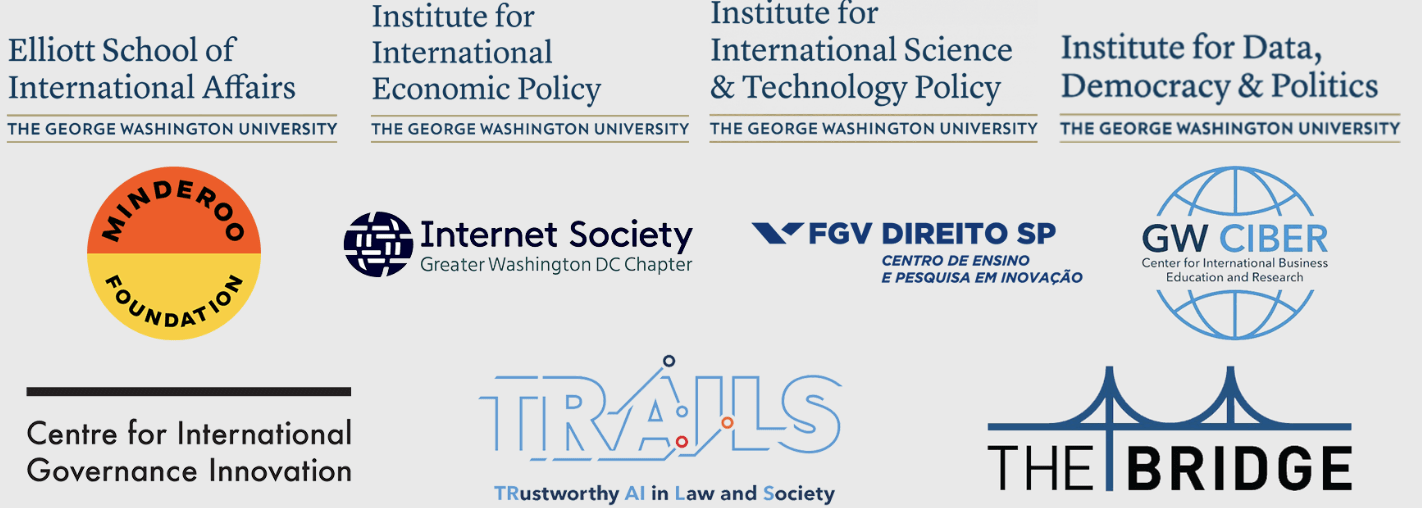
Congressman Don Beyer Chats with Computer Scientist Hal Daumé III
Friday, May 12, 12:00-1:00 PM EDT
Like many Americans, members of Congress are struggling to understand the costs and benefits as well as the workings of various forms of AI. But Congressman Don Beyer is not your average member. Like other members, he serves on several committees, including the Joint Economic Committee and the House Committee on Ways and Means. However, Beyer also enrolled as a student in artificial intelligence at George Mason University because he is fascinated by AI and wants to apply his understanding to legislation. In this webinar, Hub friend Professor Hal Daumé will ask the Congressman about his coursework, how his understanding of AI can help other members keep up with the technology, and whether and how Congress should regulate high-risk AI.
Speaker:
– Congressman Don Beyer, 8th District, Virginia.
Moderator:
– Professor Hal Daumé III, Volpi-Cupal Family Endowed Professor in Computer Science, University of Maryland, and co-author of Language (Technology) is Power
Recent Trends in China’s Large Language Model Landscape
Jeff Ding publishes new paper for AI Center for Centre for the Governance of AI.
Read the complete article.

Space and Cybersecurity
April 25, 2023 | 1PM EDT
Elliott School of International Affairs, Room 505
The event recording is now available.
The Space Policy Institute and Institue for International Science and Technology Policy are pleased to present a panel discussion focusing on the nexus of space and cybersecurity.
AGENDA
1:00PM: Keynote Remarks
- Scott Pace, Director, Space Policy Institute, George Washington University
1:10PM: Panel Discussion
- Gil Baram, Affiliate of Stanford University’s Center for International Security and Cooperation
- Melissa Griffith, Senior Lecturer in Technology and National Security at Johns Hopkins University
- Neil Sherwin-Peddie, Head of Space Security and Enterprise Security at BAE Systems Digital Intelligence, former Deputy Head of Information Assurance at the U.K. Foreign Office
- Moderated by Aaron Bateman, Assistant Professor, Space Policy Institute, George Washington University
This will be a hybrid event. You’re welcome to join us in-person at 1957 E ST NW or online via Zoom. Please register to receive more information on how to access the event. The event is open to the public and media and it will be recorded.
Introducing: International Science and Technology Policy Faculty Course Offerings, Fall 2023
(08/24/23 – 12/11/23)
| Course Number | Course Title | Professor | Schedule |
| IAFF 6141 | International Science and Technoogy Policy Cornerstone | Nicholas Vonortas | Meets every Tuesday, 5:10pm-7:00pm |
| IAFF 6145 | U.S. Space Policy | Scott Pace | Meets every Thursday, 5:10pm-7:00pm |
| IAFF 6146 | Space Law | Henry Hertzfeld | Meets every Tuesday, 3:50pm-5:50pm |
| IAFF 6148 | Space and National Security | Pete Hays | Meets every Monday, 7:10pm-9:00pm |
| IAFF 6157 | ISTP Capstone Workshop | Otaviano Canuto and Rich Leshner | Meets Monday, 5:10pm-7:00pm |
| IAFF 6158 | Special Topics in International Science and Technology Policy: Science Diplomacy | Anthony Eames | Meets every Wednesday, 5:10pm-7:00pm |
| IAFF 6158 | Special Topics in International Science and Technology Policy: Artificial Intelligence Policy Challenges | Carol Kuntz | Meets every Wednesday, 5:10pm-7:00pm |
| IAFF 6158/ECON 6255 | Special Topics in International Science and Technology Policy: Economics of Technological Change | Nicholas Vonortas | Meets every Monday, 7:10pm-9:00pm |
|
IAFF 3190 *Undergraduate course, shouldn’t be taken by graduate students. |
Space Policy | Scott Pace | Meets every Tuesday and Thursday, 11:10am-12:25pm |
For more details on these courses, please visit our academics page.

ISTP Capstone group attends EDRi event in Brussels as part of their Capstone project.

Nuclear Security: Our View from Vienna with Ambassador Laura Holgate
March 17 | 1PM | 1957 E ST NW, Lindner Commons (Room 602, 6th Floor), Washington, DC
GW’s Institute for International Science and Technology Policy is honored to welcome Ambassador to the Vienna Office of the United Nations and the International Atomic Energy Agency, Laura Holgate. Ambassador Holgate will offer brief remarks, focusing on nuclear security, before opening the discussion to Q&A.
Dean of the Elliott School of International Affairs, Alyssa Ayres, will give welcoming remarks and Research Professor Doug Shaw will moderate the Q&A.
This will be an in-person event following Chatham House Rule.
About the Speaker
Laura S.H. Holgate serves as U.S. Ambassador to the Vienna Office of the United Nations and to the International Atomic Energy Agency, advancing multilateral approaches to reduce global threats and seize opportunities in the areas of nuclear nonproliferation, nuclear security, verification of the Iran nuclear deal, nuclear energy, nuclear testing, counterterrorism, anti-corruption, drug policy, cybercrime, and export control. She previously held the position from July 2016 to January 2017.
From 2018 to 2021, Ambassador Holgate was vice president for materials risk management at the Nuclear Threat Initiative (NTI), responsible for designing and executing NTI’s activities to prevent nuclear terrorism, such as reducing quantities and enhancing security of nuclear and radiological materials around the world, promoting cooperation between the United States and key partners on nuclear and radiological security, and strengthening the global nuclear security architecture.
Ambassador Holgate co-led the creation of Gender Champions in Nuclear Policy, launched in November 2018, to increase the presence, visibility and impact of women in nonproliferation, nuclear deterrence, nuclear security, disarmament, nuclear energy and related areas. During her previous ambassadorial posting, she promoted gender balance in the staff and programming of the Vienna-based international organizations, laying the groundwork for the creation of the Vienna chapter of the International Gender Champions, and is proud to have joined this chapter in March 2022.
Ambassador Holgate served as the special assistant to the president and senior director for weapons of mass destruction terrorism and threat reduction on the U.S. National Security Council from 2009 to 2016. In this role, she oversaw and coordinated the development of national policies and programs to reduce global threats from nuclear, biological and chemical weapons; detect, identify, secure and eliminate nuclear materials; prevent malicious use of biotechnology; and secure the civilian nuclear fuel cycle. She was the U.S. Sherpa to the Nuclear Security Summits and co-led the effort to advance the President’s Global Health Security Agenda.
Holgate was a founding Vice President of NTI, leading its Russia/New Independent States programs from 2001 to 2009. Prior to that, she directed the U.S. Department of Energy’s Office of Fissile Materials Disposition from 1998 to 2001, and was special coordinator for cooperative threat reduction at the Department for Defense from 1995 through 1998, where she provided policy oversight of the “Nunn-Lugar” Cooperative Threat Reduction program.
Holgate received a Bachelor of Arts Degree in politics from Princeton University and a Master of Science Degree in political science from the Massachusetts Institute of Technology, and spent two years on the research staff at Harvard University’s Belfer Center for Science and International Affairs at the Kennedy School of Government. Holgate is a member of the Council on Foreign Relations.
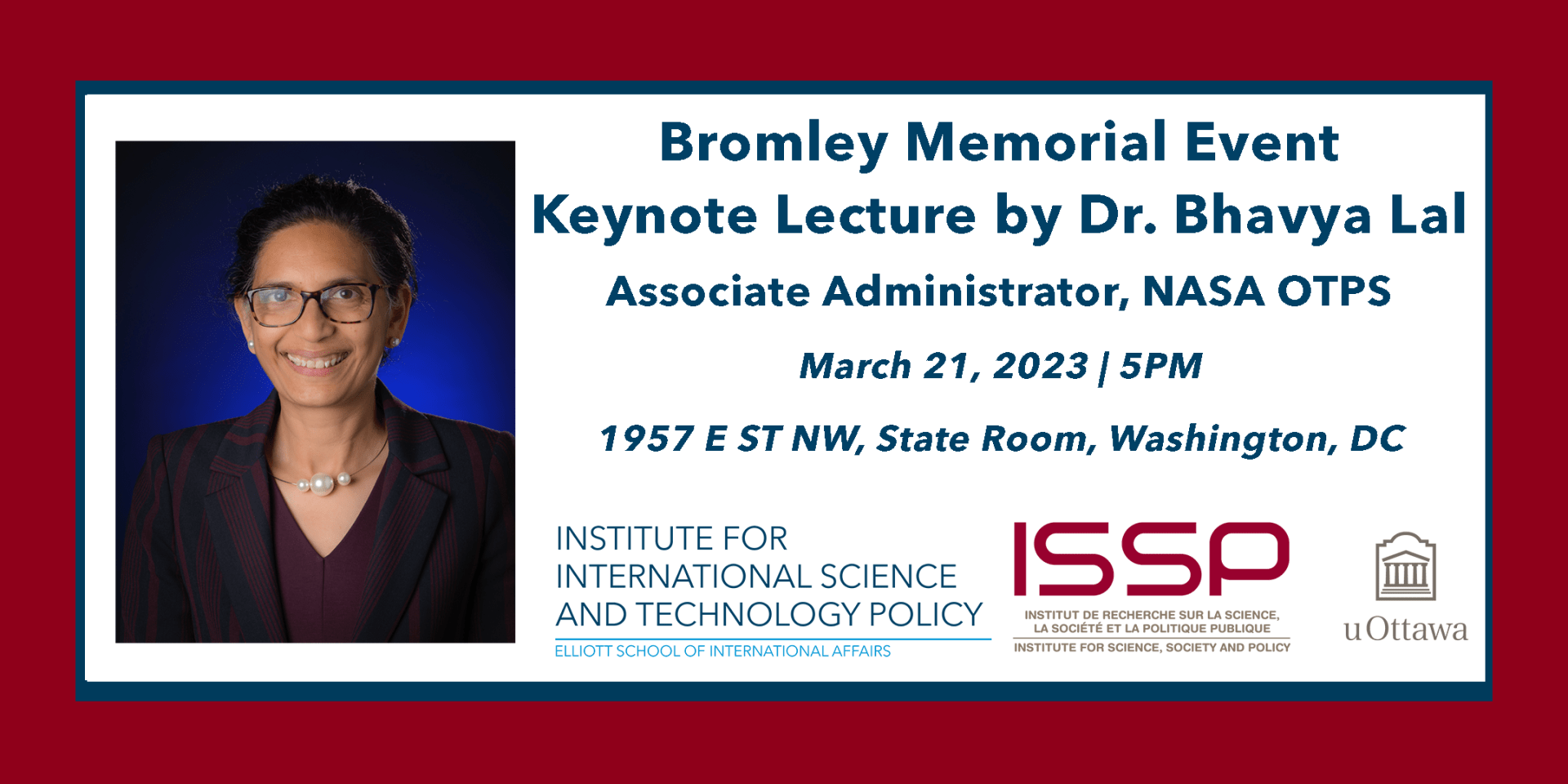
Bromley Memorial Keynote Lecture
Tuesday, March 21, 2023 | 5PM | 1957 E ST NW, State Room (7th Floor), Washington, DC 20052
The event recording is now available.
About the Event
The Institute for International Science and Technology Policy (IISTP) at GW’s Elliott School and uOttawa’s Institute for Science, Society, and Policy (ISSP) are pleased to host the 2023 Bromley Memorial Keynote Lecture, featuring Dr. Bhavya Lal, Associate Administrator, NASA OTPS. Dr. Lal will lend her extensive experience and expertise to the subject of international and other policy challenges and opportunities that need to be addressed as we endeavor to go to the Moon and then Mars. Her remarks will be followed by brief remarks from two student responders and the event will finish with an audience Q&A.
About the Speaker
Dr. Bhavya Lal is the associate administrator for the NASA Office of Technology, Policy, and Strategy (OTPS) within the office of the NASA administrator. She provides executive leadership, direction, and evidence-driven advice to NASA leadership on internal and external policy issues, strategic planning, and technology investments. Lal also previously served as the acting chief technologist of NASA and was the first woman to hold the position in over 60 years of NASA history. Before her current role and in the first 100 days of the Biden Administration, she was the acting chief of staff at NASA, directing the agency’s transition under the administration of President Biden.
Lal has over 20 years of experience as an active part of the space technology and policy community, having worked for government sponsors, federal departments, and agencies, and chaired, co-chaired, or served on multiple committees. She has more than 50 papers published in peer-reviewed journals and conference proceedings.
Lal received her bachelor’s and master’s degrees in nuclear engineering from the Massachusetts Institute of Technology (MIT) and a second master’s from MIT’s Technology and Policy Program. She earned her doctorate in Public Policy and Public Administration from George Washington University.
About Accessing the Event
This event will take place on March 21, 2023 at 5PM in the State Room at 1957 E ST NW, Washington, DC 20052. It will also be available online, via Zoom. The discussion will be on the record and recorded. Please register for additional information.
About the Bromley Memorial Event
One of the world’s leading nuclear physicists, D. Allan Bromley was born in Westmeath, Ontario, in 1926 and held degrees from Queen’s University and the University of Rochester. Dr. Bromley sat on President Regan’s White House Science Council and was the first person to hold the Cabinet-level rank of Assistant to the President for Science and Technology from 1989 to 1993, a position he held during the administration of George H.W. Bush. D. Allan Bromley died in 2005. To learn more about the life and work of Dr. Bromley, read Dr. Paul Dufour’s reflections on Allan Bromley’s efforts in strengthening the Canada-US STI policy partnership during his tenure as OSTP Director and at Yale.
Founded by Dr. John de la Mothe, a Canada Research Chair and Professor at the University of Ottawa, the annual Bromley Memorial Event is now organized by the University of Ottawa ISSP and the George Washington University IISTP. The two day event provides graduate students from GW and uOttawa with the opportunity to meet and exchange ideas with senior science and technology (S&T) policy advisors from various countries, sectors, and levels of government in Washington D.C. and in Ottawa.
The keystone of the event is the public Bromley Memorial Keynote lecture. Previous keynote speakers have included: Dr. Mona Nemer, Chief Science Advisor of Canada; Dr. Sethuraman Panchanathan, Director of the National Science Foundation; and many more distinguished S&T policy leaders.

Webinar:
The State of AI in China with Dr. Jeffrey Ding
Friday, March 10, 11:00-12:00 PM EST
The event recording is now available.
Market dominance in AI should not be a competition among nations. However, in recent years, some analysts have sounded an alarm– asserting that China, an authoritarian regime, could achieve comparative advantage in AI due to several factors including its large supply of government capital, excellent infrastructure; large supply of well-trained engineers, data, and computer scientists; huge troves of data; and its AI and data governance paradigm.
But recent developments challenge that hypothesis. First, the government has bullied tech managers and investors and altered its approach to regulation. The COVID lockdown has altered investment patterns and US policies have disincentivized shared research and corporate partnership. Finally, Western companies have created widely utilized large visual and language learning models such as DALL-E and ChatGPT. These models have been described as the next platform shift, because they can be easily deployed across existing technologies.
Taken in sum, these developments could have wide ranging impacts on global economic and political relations. Our speaker, Jeffry Ding will provide insights into the state of AI in China, as well as its governance.Speaker:
- Dr. Jeffrey Ding, Assistant Professor, GWU
Moderator, Dr. Susan Ariel Aaronson, Director, Digital Trade and Data Governance Hub, Research Professor and Cross-Disciplinary Fellow, GWU

US-Japan Nuclear Energy Cooperation in Fast Reactors
Friday, March 10 | 6:00PM-8:00PM EST | Online via Zoom
The webinar recording is now available in English and in Japanese.
The U.S. and Japanese public and private sectors are currently cooperating on advanced reactors, also known as “fast reactors.” Both countries pursued the commercialization of fast reactors beginning in the 1950s but halted their programs for different reasons and at different times. The United States halted construction of prototype reactors in the 1990s due to soaring costs, safety issues, and the risks of nuclear proliferation. Japan abandoned its prototype Monju reactor in 2016 for cost and safety issues.
The United States and Japan are now returning to this technology together. The US Department of Energy is financially supporting the construction of demonstration reactors by the private sector and Japan has decided to join the US program.
The cooperation raises interesting questions. Is there any prospect for commercialization of fast reactors in the near future? What are the hoped-for gains? Are fast reactors an effective solution to nuclear waste and climate change? What are the potential nuclear proliferation implications? This event features speakers from the United States, Canada and Japan to discuss the current status, feasibility and implications of promoting the development of fast reactors.
MODERATORS
Sharon Squassoni (Professor, the George Washington University)
Sayo Saruta (President, New Diplomacy Initiative)
SPEAKERS & TOPICS
Frank von Hippel(Professor emeritus, Princeton University)
Interested in nuclear issues on the Korean peninsula? Check out the new report from Research Professor Sharon Squassoni: Denuclearization of the Korean Peninsula: An Arms Control Framework. Check out the full report and the executive summary.
EURAXESS North America and George Washington University (GWU) are co-hosting the Eighth Annual Meeting of the European Scientific Diasporas in North America. This flagship event will be the first activity of the GWU Seminar Series.
Thursday, December 1, 2022 | 10:00AM EST
The event explores the successes and experiences of the European researcher diaspora networks in the United States and Canada and the increasing importance of scientific diasporas. This will be a hybrid event. Guests are welcome to join us in-person at 1957 E ST NW, Lindner Commons (Room 602), Washington, DC 20052 or online via Zoom. Please register for more information on how to access the event online.
This year’s theme is Scientific Diasporas in Science Diplomacy. The free event is open to all researchers in North America, including European researchers as well as current, previous, and potential researchers based in Canada and the U.S. who have or would like to benefit from European research grants to further their careers. Representatives from scientific diaspora networks, European embassies, North American universities, U.S. government, industry, research institutions, and more are also welcome to attend and participate.
The event recording is now available!
XR, AI, & Human Rights
A DataGovHub Webinar | Tuesday, November 1, 2022 12:00PM-1:00PM EDT
View the event recording.
Data-driven technologies such as XR and AI could, if effectively designed and deployed, enhance human rights because they expand individual capabilities. XR uses computer-generated virtual environments to enhance an individual’s capabilities and experiences. AI, in contrast, attempts to replicate the way humans understand and process information and, combined with the capabilities of a computer, process vast amounts of data without flaws. But computers lack moral and ethical reasoning skills although some people assert that computers can be trained with the “right” data. Yet many believe these technologies undermine a wide range of human rights from access to information, privacy, freedom of speech and association, and rights to non-discrimination, for example.
Speaker:
Dr. Louis Rosenberg, a pioneer of virtual and augmented reality for over 30 years and current CEO of Unanimous AI. He has written a variety of pieces arguing that several human rights will be undermined and we will be subject to more fraud and deception.
Moderator: Research Professor Susan Aaronson, Director of the Digital Trade and Data Governance Hub, GWU.
You can email questions in advance to datagovhub@gwu.edu or by using the Q&A function at the bottom of your screen during the webinar. Please note that we will disable chats, video, and audio of attendees.
Please contact datagovhub@gwu.edu with any questions about the webinar or the Hub’s educational efforts.
Introducing: International Science and Technology Policy Faculty Course Offerings, Spring 2023
(01/17/23 – 05/01/23)
| Course Number | Course Title | Professor | Schedule |
| IAFF 6143 | Science and Technology Policy Analysis | Nicholas Vonortas | Meets every Monday, 5:10pm-7:00pm |
| IAFF 6146 | Space Law | Henry Hertzfeld | Meets every Wednesday, 6:00pm-8:00pm |
| IAFF 6151 | Environmental Policy | Nina Kelsey | Meets every Wednesday, 5:10pm-7:00pm |
| IAFF 6153 | Science, Technology, and National Security | Pete Hayes | Meets every Monday, 7:10pm-9:00pm |
| IAFF 6158 | Issues in U.S. Space Policy: Tools and Scenarios | Scott Pace | Meets every Tuesday, 5:10pm-7:00pm |
| IAFF 6158 | Space Economics | Henry Hertzfeld | Meets every Thursday, 5:10pm-7:00pm |
| IAFF 6158/PPPA 8167 | Doctoral Seminar | Scott Pace | Meets every Friday, 6:10pm-8:00pm |
| IAFF 6158 | Science, Technology and Global Statecraft | Aaron Bateman | Meets every Wednesday, 5:10pm-7:00pm |
|
IAFF 3179 *Undergraduate Course |
Space in International Affairs | John Klein | Meets every Monday, 7:10pm-9:40pm |
For more details on these courses, please visit our academics page.
Interested in Critical Technologies and Technology Sovereignty? Check out: Tech Forum 2022
ISTP Science Diplomacy Course Featured in Elliott School State of the School Report 2021-2022.

Webinar: Trade Secret? How AI is Changing Trade and How Trade Agreements Address AI
Time: Friday, September 30th, 9:00-10:00 AM Eastern Time
Access the event by registering at the event website.
Artificial intelligence is both expanding trade and altering trade. Moreover, a growing number of digital trade agreements include language to encourage AI. For example, some include provisions encouraging the free flow of data and/ or language requiring that public data when open be provided in a machine readable format. But policymakers are just beginning to figure out how encourage AI (as example to incentivize multi- sectoral data sharing). Meanwhile, more than 60 countries have AI strategies and 11 have data strategies. Policymakers could alter comparative advantage in data through various approaches to regulating data or the data giants. This webinar will feature two scholars who have recently written on the relationship between AI and trade.
Speakers:
- Emily Jones, Associate Professor, Blavatnik School of Government Oxford
University, author of Digital Disruption: AI and International Trade Policy. - Neha Mishra, Assistant Professor, Graduate Institute, Geneva, author of
Regulating artificial intelligence through digital trade agreements
Moderator: Research Professor Susan Aaronson, Director of the Digital Trade and Data Governance Hub, GWU
The event recording is now available.

The GW Institute for Korean Studies, the East Asia National Resource Center and the Institute for International Science & Technology Policy present:
Korea Policy Forum, Virtual Roundtable Discussion: Global Semiconductor Supply Chain and US-ROK Cooperation
Tuesday, September 20, 2022
9:00 AM – 10:30 AM EDT
Virtual Event via Zoom
Event Description
In recent years, South Korea and the United States have stepped up their discussions and cooperation on economic security. Recognizing the vital importance of the semiconductor industry in particular, the two allies have made bolstering supply chain resilience in this sector a policy priority. In the wake of global semiconductor shortages due to the COVID-19 pandemic, safeguarding these supply chains has been brought to the forefront of policy discussions in both countries. Underscoring the importance of semiconductors to the security of both countries, South Korea and the United States agreed to strengthen their strategic economic and technology partnership at the first Biden-Yoon summit in May 2022. The two allies have since sought to deepen and broaden cooperation on critical and emerging technologies, such as leading-edge semiconductors.
Two leading experts from the U.S. and Korea, respectively, will be joining us to discuss their national economic security strategy and industrial policy regarding the global semiconductor supply chain. The GW Institute for Korean Studies and the Institute for International Science and Technology Policy invite you to join us for an engaging discussion on this important topic.
This event is on the record and open to the public.
The event will be recorded and made available on GWIKS’ YouTube channel
The event recording is now available.
New Course Announcement: Spring 2023
PPPA 8197.80/ IAFF 6158.90 Seminar in Science and Technology Policy
Doctoral seminar on theory and practice in science and technology policy. Critical evaluations of current and historical foundations of science and technology policy. Application of analyses to policy questions and implementation of policy choices in selected fields related to science and technology policy. Prerequisites: The PPPA 8197.80 course is intended for TSPPPA PhD candidates in the S&T field prior to taking their field exams. MA candidates from who have completed the International Science and Technology Policy Cornerstone Seminar (IAFF 6141) may also take the course as IAFF 6158.90. Friday 6:10-8:00 pm, Spring 2023
Taught by ISTP/IISTP/SPI Director, Professor Scott Pace
Science Diplomacy on the Move
This summer’s Science Diplomacy course (IAFF 6158) took learning outside the classroom. Led by Professors Anthony Eames and Derya Karacan, students visited the Ronald Reagan Library Foundation and Dr. Florent Bernard, the science counselor of the EU Delegation to the US. The EU Delegation also returned the favor, stopping by the Elliott School to engage with the class. If you’re interested in Science Diplomacy, next year save a spot on your Summer class roster for the 2023 Science Diplomacy course!
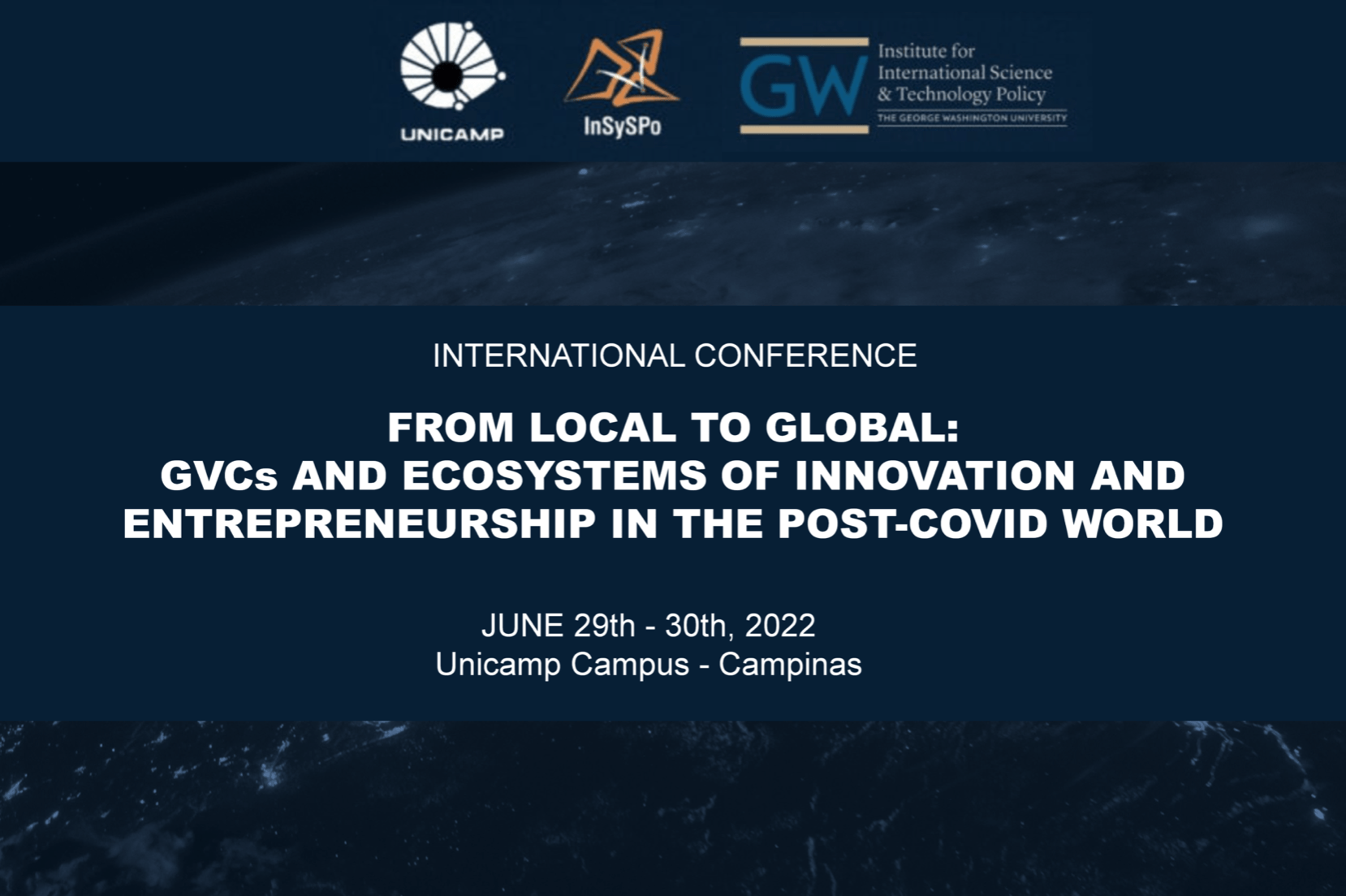
The world is in turbulence caused by several events occurring simultaneously. Among these events, a general mistrust of globalization in the electorates of several democratic (and non) countries, the geopolitical tensions between China and the United States as well as wars between Russia and its neighbours, and COVID-19 loom large. The latter has evolved into a global health crisis that – considering the levels of global socioeconomic integration – is unprecedented in modern history (past 100 years), leading governments to take drastic measures which impact social life but also economy and Global Value Chains (GVC).
The confluence of such crises is expected to lead to a widespread economic turmoil that will hit hard many countries and regions worldwide. Scholars have argued about the surging of a phase of de-globalization in which GVCs are being transformed and restructured. In parallel, accelerating shifts associated with Industry 4.0 are also shaping the reorganization of the global economy.
If so, the effect on systems of innovation will be profound. The double-sided feature of productive structures (global and local) towards innovation generates dense interactions – a pivotal element of competitiveness at the micro, meso and macro-levels. Notwithstanding, prospective trends of disruption represent substantial risks for relationships involving organizations and innovation systems.
Based on this background, there is massive uncertainty in how countries, regions, firms and individuals will respond to multifaceted crises and productive rearrangements, which ones will be more resilient and better capable of adaptation than others, and why that will be the case. Considering the pivotal role played by GVCs in shaping and integrating technological capabilities at the micro, meso and macro-levels worldwide better conceptualizing these conditions becomes key to properly addressing how economic and innovation systems will absorb the associated.
This international conference will address these fundamental questions. In particular, we our topics of interest will cover:
Global Value Chains and local ecosystems of innovation
Global Value Chains and international networks (resilience)
Global Value Chains and technology upgrading
Global Value Chains and regional innovation policy
ORGANIZERS
Ron Boschma – R.A.Boschma@uu.nl
Utrecht University, Regional Economics, Faculty of Geosciences (Netherlands)
Bruno Fischer – bfischer@unicamp.br
University of Campinas, School of Applied Science (Brazil)
Nicholas S. Vonortas – vonortas@gwu.edu
George Washington University, Department of Economics & Institute for Int’l S&T Policy (US)
São Paulo Excellence Chair, University of Campinas (Brazil)
VENUE
R. Carlos Gomes, 250 –Auditório do Instituto de Geociências – Cidade Universitária, Campinas – SP, 13083-869
This is a hybrid event. It will be possible to also participate online.
REGISTRATION
Registrations are now open! Register here.
More information is available here.
Any questions? Please contact Yohanna Juk at yjuk@unicamp.br.
Our Immersive Digital Future:
How Extended Reality May Affect International Relations
June 9-June 10, 2022
Immersive spatial computing technologies such as augmented reality and virtual reality can change how we see, interact with, and experience the world. But we don’t know how these technologies (which we refer to as XR) may affect global governance and international relations. GWU’s Digital Trade and Data Governance Hub aims to foster a discussion around these issues and the Institute for International Science and Technology Policy is a proud partner in this endeavor. (For a full list of partners and contributors, please see the event webpage.)
The conference will include some 10 panels on various aspects of how XR will change international affairs and how governments are using XR to achieve international objectives. It will:
Discuss: How XR may affect key issues and institutions of international governance such as national security, democracy, human rights, and international economics.
Explore: How XR challenges the role of the nation state, corporations, and individuals.
Examine: How some countries are already adapting to the opportunities and risks posed by XR.
The free 2-day hybrid event is designed to facilitate a dialogue among attendees and speakers. Some speakers will be live cast and the event will be available live on YouTube. Attendees in the Washington region are encouraged to attend in person, as Meta, the US Air Force, and the US Army are providing headsets and XR programs. Food will be provided.

On May 13, 2022 the Elliott School celebrates commencement. On behalf of the ISTP program, the Institute for International Science and Technology Policy, and the Space Policy Institute we wish our graduates congratulations and great success in the future!
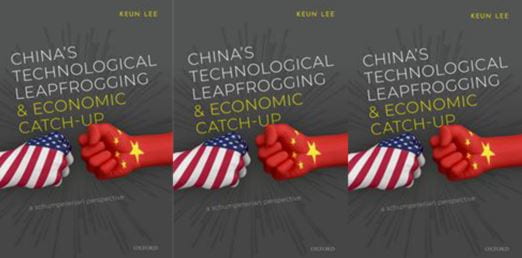
China’s Prospects for Catching Up:
Escaping the Middle-Income Trap in an Era of Massive GVC Repositioning
Featuring Keun Lee, Distinguished Professor of Economics at Seoul National University and author of the newly published book: China’s Technological Leapfrogging and Economic Catch-up: A Schumpeterian Perspective.
This book launch seminar will feature remarks from Keun Lee, Professor of Economics at Seoul National University and author of the newly published book: China’s Technological Leapfrogging and Economic Catch-up: A Schumpeterian Perspective.
Keun Lee is a Distinguished Professor of Economics at Seoul National University in Seoul, Korea. He is an editor of Research Policy, an associate editor of Industrial and Corporate Change, a council member of the World Economic Forum since 2016 and Vice Chair of National Economic Advisory Council of Korea. He holds a Ph.D. in economics from the University of California, Berkeley.
About the book: After the miraculous economic growth known as the Beijing Consensus, China is now facing a slowdown. The attention has moved to the issue of the middle income trap, or the situation in which economic growth slows down as a country reaches the middle income stage. China’s Technological Leapfrogging and Economic Catch-up: A Schumpeterian Perspective deals with this interesting issue in the context of China. It also discusses China’s limitations and future prospects, especially after the rise of a new “cold war” between China and the US, namely the question of whether China would fall into another trap called the “Thucydides trap,” or conflict with the existing hegemon as a rising power. In sum, this book plays around three key terms, namely, the Beijing Consensus, the Middle Income Trap, and the Thucydides trap, and applies a Schumpeterian approach to these concepts. This book also conducts a comparative analysis that examines China from an “economic catch-up” perspective. An economic catch-up starts from learning and imitating a forerunner, but finishing the race successfully requires taking a different path along the road. This act is also known as leapfrogging, which implies a latecomer doing something different from, and often ahead of, a forerunner.

In Memorium
The Elliott School of International Affairs mourns the passing of Dr. Albert H. Teich, research professor of science, technology & international affairs at the Institute for International Science and Technology Policy (IISTP). Dr. Teich came to the Elliott School in February 2012 following a distinguished 32-year career with the American Association for Advancement of Science (AAAS). We are grateful for the life and incredible work of Dr. Teich, and we will continue to celebrate his legacy at the Elliott School and IISTP.
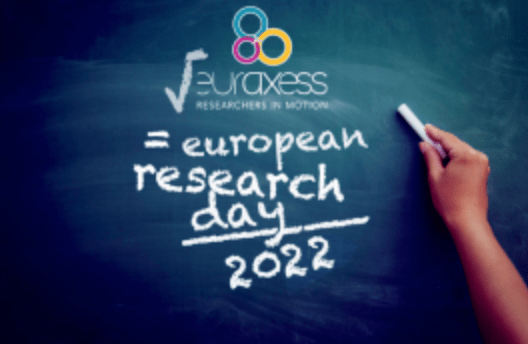
European Research Day (ERD) is an annual flagship event of EURAXESS North America to promote Europe as a hub for research and innovation. With the previous edition focused on Europe-Canada collaboration, this year’s ERD will focus on the United States, featuring officials and researchers from both sides of the Atlantic. EURAXESS North America is co-organising the online event with George Washington University’s Institute for International Science and Technology Policy (IISTP) and features the support of the EU Delegation to the U.S.
This year’s title is Tackling Society’s Biggest Challenges: Mobilizing Researchers for the Environment, Digital Transformation, and Public Health.
ERD 2022 will be a unique opportunity for European and U.S. officials and researchers to engage in discussions on researcher mobility and the implementation of approaches to innovation research. Special emphasis will be placed on the global challenges of sustainability, digital transformation, and health. ERD 2022 will also provide a platform where researchers can share their challenges and expectations about transatlantic research and innovation collaborations.
The online event will be held on Zoom on Tuesday, May 10th, 2022 at 12:00 noon ET (9:00 AM PT / 6:00 PM CEST). Convert to your local time zone here. The webinar is free (registration required) and will be held in English.
Access the event recordings and speaker presentations here.
Agenda:
- Welcome remarks from Director-General Jean-Eric Paquet, Research and Innovation, European Commission
- Remarks from Aurélie Bonal, Deputy Chief of Mission, Embassy of France to the United States
- Keynote speech from Brian Stone, Chief of Staff, National Science Foundation (NSF)
- Panel discussion: “Transatlantic Collaboration and Mobilizing Researchers for Global Challenges”
- Dr. Florent Bernard, Science Counselor, Delegation of the European Union to the United States
- Dr. Mireille Guyader, Science Counselor, Office of Science and Technoloy (OST) at the Embassy of France to the U.S.
- Additional panelists pending confirmation
- Breakout rooms:
- EU Funding Opportunities and Horizon Europe’s Novelties
- Scientific Openness and International Collaboration in Times of Conflict
- Transatlantic Research Collaboration/Mobility: Needs and Challenges
- Plenary conversation on breakout room discussions
- Closing remarks from Maria Cristina Russo, Director for Global Approach & International Partnerships, Directorate-General for Research and Innovation, European Commission
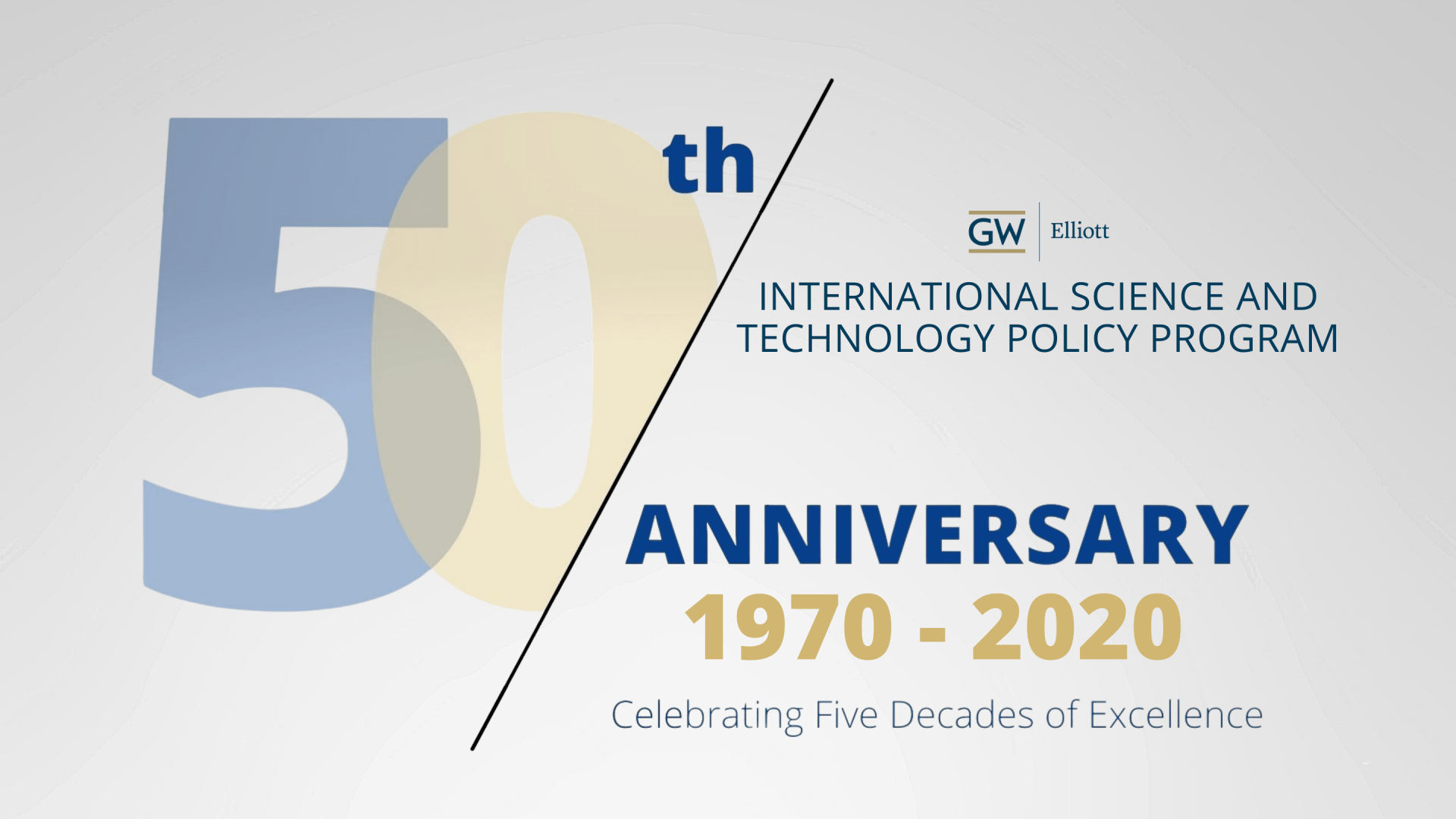
The International Science and Technology Policy Program, with the support of the Institute for International Science and Technology Policy and the Space Policy Institute, are pleased to invite you to:
International Science and Technology Policy: Celebrating 50 Years
On March 30, 2022, the Elliott School’s International Science and Technology Policy (ISTP) program will celebrate its 50-year history with a full-day event. Featuring distinguished alumni and S&T experts, the event will examine the ISTP program’s legacy while exploring the future of S&T, across the globe. A celebratory reception will follow.
Wednesday, March 30, 2022
Morning Session: 10:00AM-12:30PM EDT
Afternoon Session: 2:00PM-3:30PM EDT
Keynote Address and Discussion: 4:00PM-5:15PM EDT
Reception: 5:15PM-7:00PM
The morning, afternoon, and keynote sessions will be presented in a hybrid format; we invite you to attend in-person at 1957 E ST NW, Washington, DC or join us live via Zoom. Please register for more information on how to access the event in-person or online.
View the morning session recording here.
View the afternoon session here.
As we celebrate 50 years of International Science and Technology Policy at GW, we remember decades of development and the people that made it all possible. Interested in the history of the International Science and Technology Policy program and the Institute?
Discover:
Science and Technology Policy at GW: a History
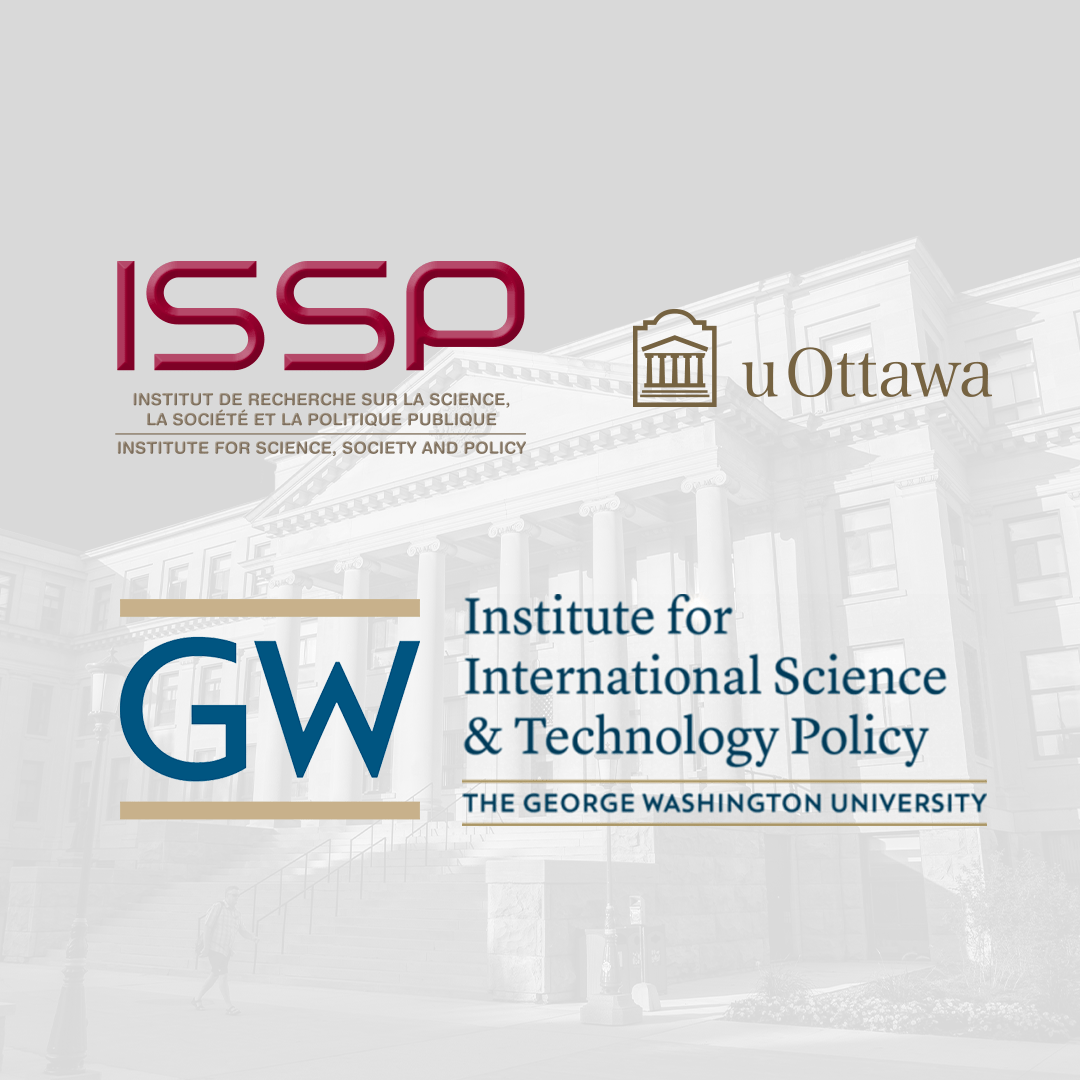
The Bromley Memorial Event, April 20, 2022
On Wednesday, April 20, 2022, at 4:30 PM, the Institute for Science, Society and Policy at the University of Ottawa and the Institute for International Science and Technology Policy at the George Washington University are delighted to host Dr. Mona Nemer, Chief Science Advisor of Canada, as part of the 2022 Bromley Memorial Event.
The event will be held at the University of Ottawa but will also be broadcast virtually.
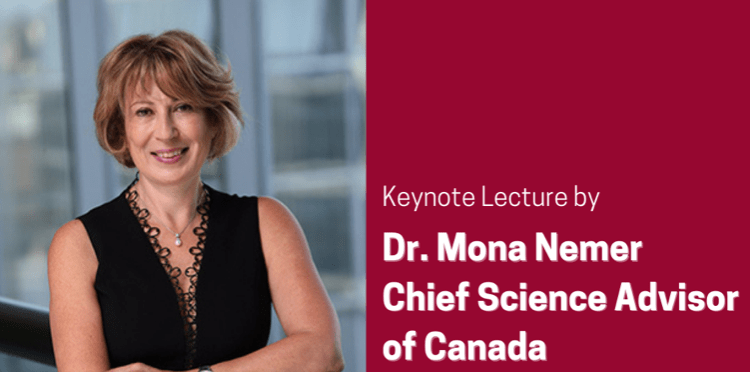
On March 30, 2022 the Institute for International Science and Technology Policy had the privilege of meeting with a delegation of Brazilian officials, including Eduardo Leite — Governor, State of Rio Grande Do Sul, Brazil; Alsones Balestrin — State Secretary, Department for Innovation, Science and Technology; and Leonardo Neves — Director of Trade Promotion and International Affairs, State Department for Economic Development.
Introducing: International Science and Technology Policy Faculty Course Offerings, Fall 2022
(08/29/22 – 12/12/22)
| Course Number | Course Title | Professor | Schedule |
| IAFF 6141 | International Science and Technoogy Policy Cornerstone | Nicholas Vonortas | Meets every Tuesday, 5:10pm-7:00pm |
| IAFF 6145 | U.S. Space Policy | Scott Pace | Meets every Thursday, 5:10pm-7:00pm |
| IAFF 6148 | Space and National Security | Pete Hays | Meets every Monday, 7:10pm-9:00pm |
| IAFF 6157 | ISTP Capstone Workshop | Otaviano Canuto and Rich Leshner | Meets Monday, 5:10pm-7:00pm |
| IAFF 6158 | Special Topics in International Science and Technology Policy: Artificial Intelligence Policy Challenges | Carol Kuntz | Meets every Wednesday, 5:10pm-7:00pm |
| IAFF 6152 | Energy Policy | Nina Kelsey | Meets every Wednesday, 5:10pm-7:00pm |
| IAFF 6158/ECON 6255 | Special Topics in International Science and Technology Policy: Economics of Technological Change | Nicholas Vonortas | Meets every Monday, 7:10pm-9:00pm |
|
IAFF 3190 *Undergraduate course, shouldn’t be taken by graduate students. |
Space Policy | Scott Pace | Meets every Tuesday and Thursday, 11:10am-12:25pm |
For more details on these courses, please visit our academics page.

New co-authored article from IISTP Director Nicholas Vonortas:
Innovation Barriers, Indicators and Policies Coevolving Concepts in the History of Innovation Studies
By Diego R. de MoraesSilva, NicholasS. Vonortas, André T. Furtado
Innovation Barriers, Indicatorsand Policiesexplores the historical coevolution of these three core concepts in the field: barriers, indicators, and policies. The authors show how these concepts have coevolved and reinforced each other throughout the history of Innovation Studies. This detailed historical review on the general conception of innovation is warranted in order to support a clear understanding of innovation barriers, indicators, and related policiesas they have been shaped and co-evolved through time. Based on the thorough review of innovation barriers undertaken herein, we see that financial and non-financial obstacles do not affect the innovation output directly. Instead they impede the effect of the innovation determinants, whether these determinantsare firm-specific, network-specific, or referringto the contextual environment. Section 2 presents a thorough discussion on the historical evolution of the innovation concept and its connection to the concepts of barriers, indicators, and policies. Section 3 discusses the beginnings of the measurement of innovation barriers, as well as the linkage between the study of obstacles to innovation and a policy-driven approach towards scientificand technological progress. Finally, Section 4 concludes with the main findings and avenues for future study.
Introducing: International Science and Technology Policy Faculty Course Offerings, Spring 2022
(01/10/22 – 04/25/22)
| Course Number | Course Title | Professor | Schedule |
| IAFF 6143 | Science and Technology Policy Analysis | Nicholas Vonortas | Meets every Monday, 5:10pm-7:00pm |
| IAFF 6146 | Space Law | Henry Hertzfeld | Meets every Wednesday, 6:00pm-8:00pm |
| IAFF 6151 | Environmental Policy | Nina Kelsey | Meets every Wednesday, 5:10pm-7:00pm |
| IAFF 6153 | Science, Technology, and National Security | Pete Hayes | Meets every Monday, 7:10pm-9:00pm |
| IAFF 6158 | Issues in U.S. Space Policy: Tools and Scenarios | Scott Pace | Meets every Tuesday, 5:10pm-7:00pm |
| IAFF 6158 | Space Economics | Henry Hertzfeld | Meets every Thursday, 5:10pm-7:00pm |
|
IAFF 3180 *Undergraduate Course |
Space Power in Global Affairs | Scott Pace | Meets every Tuesday & Thursday, 11:10am – 12:25pm |
|
IAFF 3179 *Undergraduate Course |
Space in International Affairs | John Klein | Meets every Monday, 7:10pm-9:40pm |
For more details on these courses, please visit our academics page.

The Institute for International Science and Technology Policy is pleased to present its latest Nuclear Policy Talk:
The Rule of Law and the Role of Strategy in US Nuclear Doctrine
11:00am – 12:30pm EST
ABOUT THE EVENT
ABOUT THE SPEAKERS
Scott D. Sagan is the Caroline S.G. Munro Professor of Political Science, the Mimi and Peter Haas University Fellow in Undergraduate Education, and Senior Fellow at the Center for International Security and Cooperation and the Freeman Spogli Institute at Stanford University. He also serves as Chairman of the American Academy of Arts and Sciences’ Committee on International Security Studies. Before joining the Stanford faculty, Sagan was a lecturer in the Department of Government at Harvard University and served as special assistant to the director of the Organization of the Joint Chiefs of Staff in the Pentagon. Sagan has also served as a consultant to the office of the Secretary of Defense and at the Sandia National Laboratory and the Los Alamos National Laboratory.
Sagan is the author of Moving Targets: Nuclear Strategy and National Security (Princeton University Press, 1989); The Limits of Safety: Organizations, Accidents, and Nuclear Weapons (Princeton University Press, 1993); and, with co-author Kenneth N. Waltz, The Spread of Nuclear Weapons: An Enduring Debate (W.W. Norton, 2012). He is the co-editor of Learning from a Disaster: Improving Nuclear Safety and Security after Fukushima (Stanford University Press, 2016) with Edward D. Blandford and co-editor of Insider Threats (Cornell University Press, 2017) with Matthew Bunn. Sagan was also the guest editor of a two-volume special issue of Daedalus: Ethics, Technology, and War (Fall 2016) and The Changing Rules of War (Winter 2017).
Recent publications include “Does the Noncombatant Immunity Norm Have Stopping Power?” with Benjamin A. Valentino in International Security (Fall 2020); “Why the atomic bombing of Hiroshima would be illegal today” with Katherine E. McKinney and Allen S. Weiner in The Bulletin of the Atomic Scientists (July 2020); “Weighing Lives in War: How National Identity Influences American Public Opinion about Foreign Civilian and Compatriot Fatalities” with Benjamin A. Valentino in the Journal of Global Security Studies (December 2019); “On Reciprocity, Revenge, and Replication: A Rejoinder to Walzer, McMahan, and Keohane” with Benjamin A. Valentino in Ethics & International Affairs (Winter 2019); and “Armed and Dangerous: When Dictators Get the Bomb” in Foreign Affairs (October 2018).
In 2018, Sagan received the Andrew Carnegie Fellowship from the Carnegie Corporation of New York. In 2017, he received the International Studies Association’s Susan Strange Award which recognizes the scholar whose “singular intellect, assertiveness, and insight most challenge conventional wisdom and intellectual and organizational complacency” in the international studies community. Sagan was also the recipient of the National Academy of Sciences William and Katherine Estes Award in 2015, for his work addressing the risks of nuclear weapons and the causes of nuclear proliferation. The award, which is granted triennially, recognizes “research in any field of cognitive or behavioral science that advances understanding of issues relating to the risk of nuclear war.” In 2013, Sagan received the International Studies Association’s International Security Studies Section Distinguished Scholar Award. He has also won four teaching awards: Stanford’s 1998-99 Dean’s Award for Distinguished Teaching; Stanford’s 1996 Hoagland Prize for Undergraduate Teaching; the International Studies Association’s 2008 Innovative Teaching Award; and the Monterey Institute for International Studies’ Nonproliferation Education Award in 2009.
Allen S. Weiner, JD ’89, is an international legal scholar with expertise in such wide-ranging fields as international and national security law, the law of war, international conflict resolution, and international criminal law (including transitional justice). His scholarship focuses on international law and the response to the contemporary security threats of international terrorism, the proliferation of weapons of mass destruction, and situations of widespread humanitarian atrocities. He also explores assertions by states of “war powers” under international law, domestic law, and just war theory in the context of asymmetric armed conflicts between states and nonstate armed groups and the response to terrorism. In the realm of international conflict resolution, his highly multidisciplinary work analyzes the barriers to resolving violent political conflicts, with a particular focus on the Israeli-Palestinian conflict. Weiner’s scholarship is deeply informed by experience; he practiced international law in the U.S. Department of State for more than a decade advising government policymakers, negotiating international agreements, and representing the United States in litigation before the International Criminal Tribunal for the former Yugoslavia, the International Court of Justice, and the Iran-United States Claims Tribunal.
Senior Lecturer Weiner is director of the Stanford Program in International and Comparative Law and director of the Stanford Center on International Conflict and Negotiation. Before joining the Stanford Law School faculty in 2003, Weiner served as legal counselor to the U.S. Embassy in The Hague and attorney adviser in the Office of the Legal Adviser of the U.S. Department of State. He was a law clerk to Judge John Steadman of the District of Columbia Court of Appeals.

Join us for a conversation with Togzhan Kassenova, author of Atomic Steppe:
How Kazakhstan Gave Up the Bomb.
Atomic Steppe tells the untold true story of how the obscure country of Kazakhstan said no to the most powerful weapons in human history. With the fall of the Soviet Union, the marginalized Central Asian republic suddenly found itself with the world’s fourth-largest nuclear arsenal on its territory. Would it give up these fire-ready weapons—or try to become a Central Asian North Korea?
This book takes us inside Kazakhstan’s extraordinary and little-known nuclear history from the Soviet period to the present. For Soviet officials, Kazakhstan’s steppe was not an ecological marvel or beloved homeland, but an empty patch of dirt ideal for nuclear testing. Two-headed lambs were just the beginning of the resulting public health disaster for Kazakhstan—compounded, when the Soviet Union collapsed, by the daunting burden of becoming an overnight nuclear power.
Equipped with intimate personal perspective and untapped archival resources, Togzhan Kassenova introduces us to the engineers turned diplomats, villagers turned activists, and scientists turned pacifists who worked toward disarmament. With thousands of nuclear weapons still present around the world, the story of how Kazakhs gave up their nuclear inheritance holds urgent lessons for global security.
ABOUT THE AUTHOR
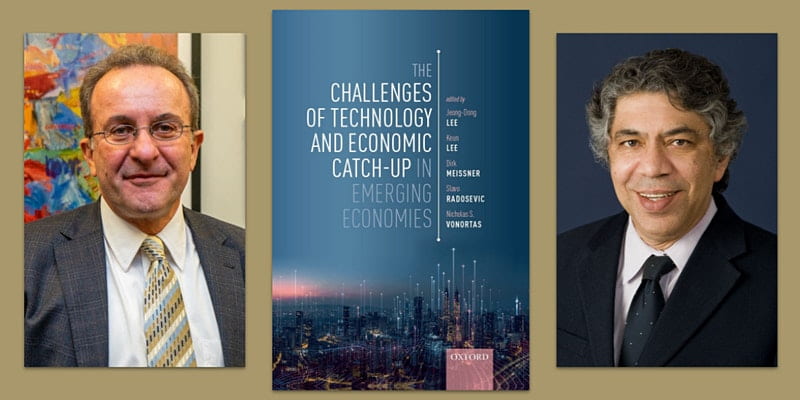
Technology can enhance growth, but what happens to growth when technology lags behind? Join us in a talk to find out.
The obstacles faced by emerging economies in upgrading their technology can stall growth, and the existing challenges are enhanced under COVID-19, geopolitical struggles, and the growing concern around environmental sustainability. The Challenges of Technology and Economic Catch-up in Emerging Economies synthesizes and interprets existing knowledge on technology upgrading failures, in firm, sector, and macro levels, across different countries and world macroregions.
The Elliott School Book Launch Series is proud to present a lecture featuring the author, Dr. Nicholas Vonortas, former executive director at the Board of The World Bank Dr. Otaviano Canuto, as well as remarks by Dean Alyssa Ayres of the Elliott School. The event will be held in-person and livestreamed simultaneously. Guidelines for virtual and in-person attendance will be included in your registration confirmation.
About the Co-Editors
Nicholas Vonortas is a Professor of Economics and International Affairs at the Elliott School and Director of its Institute for International Science and Technology Policy (IISTP). He is also the São Paulo Excellence Chair in Technology and Innovation Policy at the Universidade Estadual de Campinas (UNICAMP), and a Leading Research Fellow at the Institute for Statistical Studies and Economics of Knowledge in the National Research University Higher School of Economics in Moscow. He has served for as a member of the Innovation Policy Forum of the U.S. National Academies of Science, and his interests center around industrial organization, the economics of technological change, technology and innovation policy and strategy, and R&D program evaluation. He is the editor of the peer-reviewed journal Science and Public Policy, and holds a Ph.D. in Economics from New York University.
Jeon-Dong Lee is a professor in the College of Engineering at Seoul National University and a special advisor to the President of Korea on Economy and Science. His research focuses on the use of network economics and the social effects of network technologies. He holds a Ph.D in Science and Telecommunications from Seoul National University.
Keun Lee is a professor of economics at Seoul National University in Seoul, Korea, an editor of Research Policy, an associate editor of Industrial and Corporate Change, and a council member of the World Economic Forum, and vice chair of National Economic Advisory Council of Korea. He holds a Ph.D. in economics from the University of California, Berkeley.
Dirk Meissner is a professor and laboratory head in the Institute for Statistical Studies and Economics of Knowledge at the National Research University Higher School of Economics in Russia. His research interests include science, technology, innovation policy, and commercialization. He holds a PhD from Dresden University Institute of Technology.
Slavo Radosevic is a professor of Industry and Innovation Studies at University College London. His research focuses on the economics of technological change and innovation studies, as well as growth and structural change through innovation systems and entrepreneurship. He holds a Ph.D. from the University of Zagreb.
About the Guest Speaker
Otaviano Canuto is a nonresident senior fellow in the Global Economy and Development Program at the Brookings Institution. He is also principal of the Center for Macroeconomics and Development, and a senior fellow at the Policy Center for the New South. His experience includes 15 years as vice president, executive director or senior adviser in institutions such as the World Bank, International Monetary Fund (IMF), and Inter-American Development Bank (IDB). He has also served at the Government of Brazil as state secretary for international affairs at the ministry of finance, and taught at the University of São Paulo and University of Campinas as a professor of economics.
Anwar Aridi is a private sector specialist at the Europe and Central Asia (ECA) unit of the Trade and Competitiveness Global Practice at the World Bank. He specializes in science, technology, and innovation policy issues, private sector development, technology entrepreneurship, and technology transfer. He holds a Ph.D. in Science and Technology Policy from the GWU Trachtenberg School of Public Policy and Administration.
About the Dean
Alyssa Ayres is the Dean of the Elliott School of International Affairs at George Washington University. Her work focuses primarily on India’s role in the world and on U.S. relations with South Asia in the larger Indo-Pacific. Before joining the Elliott School, she was a Senior Fellow at the Council on Foreign Relations, and Deputy Assistant Secretary of State for South Asia under the Obama administration. She holds a Ph.D. in South Asian Languages and Literatures from the University of Chicago.
This event is co-sponsored by the Elliott School Book Launch Series and the Institute for International Economic Policy.
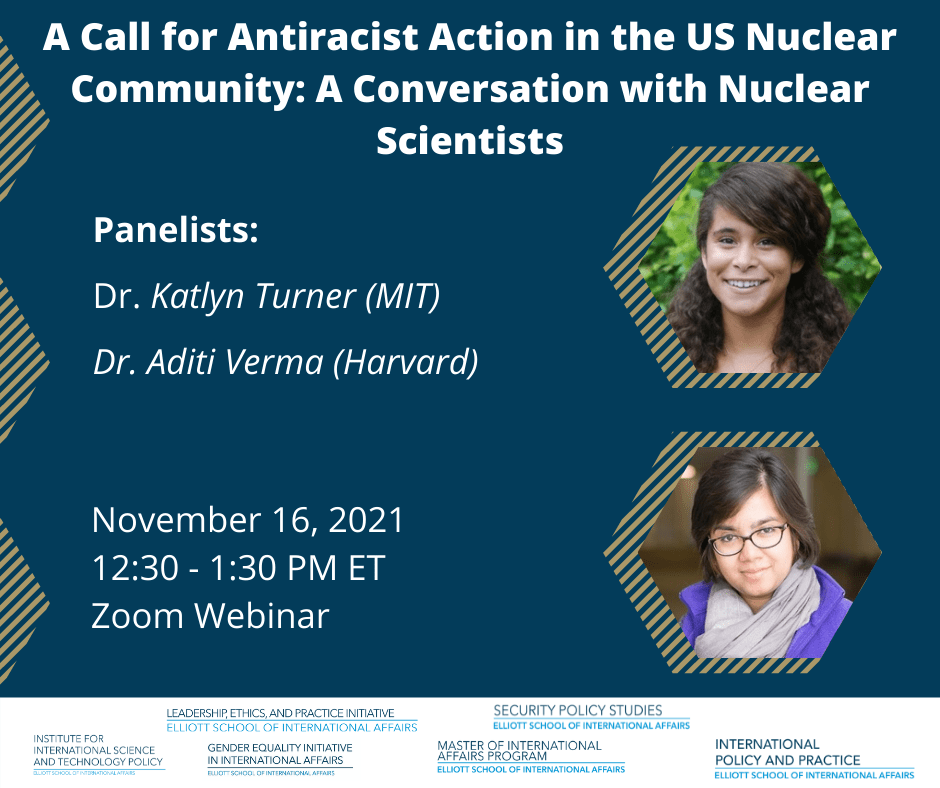
A CALL FOR ANTIRACIST ACTION IN THE US NUCLEAR COMMUNITY:
Dr. Katlyn Turner (MIT)
Dr. Aditi Verma (Harvard)

Please join us for a virtual conversation with Dr. Anna Mikulska on current energy policy challenges.
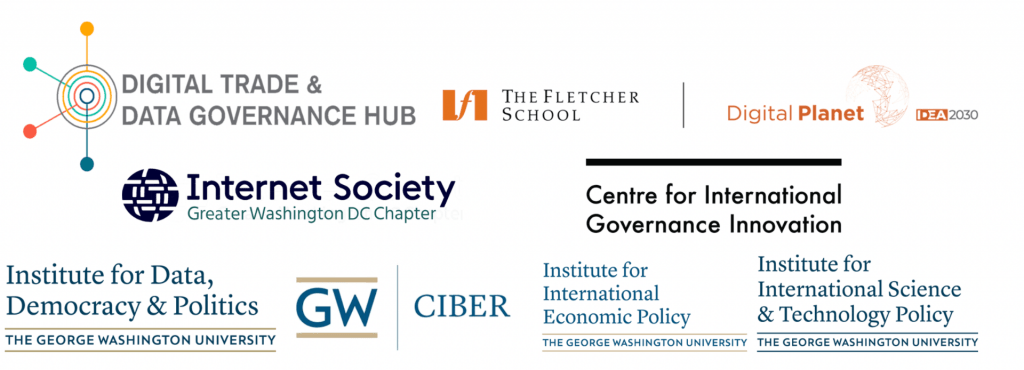
What is Comprehensive Data Governance and Why Should You Care?
An Introduction to the first Metric of Comprehensive Data Governance
Time: Tuesday, October 12th from 11:00AM – 12:00PM EDT
Arms Control: Do New Threats Require New Organizations? – YouTube
Human beings have been collecting, producing, and governing various types of data for centuries. However, with the advent of the Internet and data analysis methods such as artificial intelligence, digital data has become essential. Meanwhile, the volume, variety, and speed of transmission of data have increased dramatically, making data governance more complex and challenging. Yet we don’t know what comprehensive data governance looks like.
Speakers:
– Thomas Struett, Research Director, Digital Trade and Data Governance Hub
– Adam Zable, Koch Associates Program Fellow, Digital Trade and Data Governance Hub
Discussant: Professor James Foster, Vice Dean and Oliver T. Carr, Jr. Professor of International Affairs and Professor of Economics, Elliott School of International Affairs, George Washington University
Moderator: Research Professor Susan Aaronson, Director of the Digital Trade and Data Governance Hub, GWU

The Institute for International Science and Technology Policy is pleased to present the latest Nuclear Policy Talk:
Arms Control: Do New Threats Require New Organizations?
Ambassador Robert Gallucci, Ambassador James E. Goodby, Honorable Rose Gottemoeller, David A. Koplow, and Ms. Amy Woolf
Professor Sharon Squassoni, George Washington University
———————————————————————————————————————————————————————————————
Tuesday, October 12, 2021
2:00pm – 3:30pm EDT
Online via Zoom
Please join us on Tuesday, October 12, 2021 from 2-3:30pm EDT for a virtual discussion where we will exchange ideas for strengthening US capacity to combat, reduce, and eventually eliminate new threats. Our distinguished panel is comprised of senior former officials who have all been involved in the conduct of arms control, including Ambassador Bob Gallucci, Ambassador James Goodby, the Honorable Rose Gottemoeller, Mr. David A. Koplow, and Ms. Amy Woolf. IISTP’s Professor Sharon Squassoni will moderate the discussion.

Minerva Research Initiative Virtual Policy Meetings – Fall 2021 October 12, 14, 19, 21, 26, and 28
Start time: 1:00 ET (10:00 PT)
NB: Held under the Chatham House Rule
Tuesday, October 12 Session I – Conference Opening & Lessons from Long Wars
Thursday,October 14 Session II – Logics of Deterrence
Tuesday, October 19 Session III – Asymmetric Competition
Thursday, October 21 Session IV – Frontier Technologies and Emerging Domains
Tuesday, October 26 Session V – Hegemonic Shifts in Global Power Thursday
October 28 Session VI – Environment and Climate Risk & Conference Closing
Session Overview
Lessons from Long Wars: This session is not a reassessment of past long wars, but more aimed at using past long wars as heuristics to guide thinking about structural insights we may draw from these engagements, and apply to thinking about future engagements.
Logics of Deterrence: This session explores different domains of deterrence, especially in relation to great power efforts.
Asymmetric Competition: This session explores the challenges of irregular and unconventional warfare as well as possible approaches to those challenges.
Frontier Technologies and Emerging Domains: This session explores the role disruptive technologies may have on national security and social cohesion more broadly.
Hegemonic Shifts in Global Power: This session looks at changes to international order and our relation to it in a dynamic, as opposed to “maintaining-the-status-quo” way.
Environment and Climate Risk: This session focuses on the social and societal implications of climate and environmental risk, especially as they may influence DoD activities.
Register Here
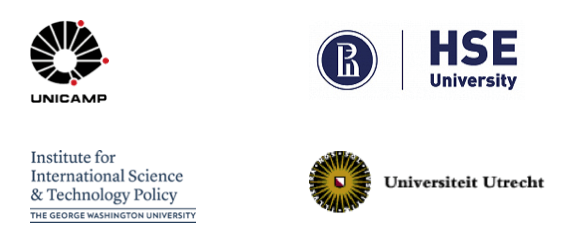
Global Value Chains and Regional Systems of Innovation: Towards a Critical Juncture?
15 October and October 29 2021, online; times shown are Moscow times (CET +1)
Session 1: October 15, 2021
Chair: Dirk Meissner National Research University Higher School of Economics
15.00 Opening / introduction
Bruno Fischer, University of Campinas
15.05 Keynote Speech – Carlo Pietrobelli
Deepening or delinking? Innovative capacity and global value chain participation in the IT industry
Carlo Pietrobelli, Department of Economics, Roma Tre University, Italy; UNU-MERIT, Maastricht, The Netherlands; Antonio Vezzani, Department of Economics, Roma Tre University, Italy
15.30 Embedding in GVCs and Local Ecosystems by Latecomers: Evidence from China’s Integrated Circuit Design Firms
Jiali Liu, Institutes of Science and Development, Chinese Academy of Sciences, CHINA
Discussant: Ron Boschma
16.00 Defining Research Agenda: Scientometric Analysis of Three decades of GVC Research
Shikha Gupta, Faculty of Management Studies, University of Delhi, Delhi, India
Discussant: Dirk Meissner
16.30 Global Value Chains (GVCs) and Productivity Upgrading: A Sectoral Level Nonlinear Approach
Zhuqing Mao, University of Johannesburg College of Business and Economics, Auckland Park, Gauteng SOUTH AFRICA
Discussant: Nicholas Vonortas
17.00 Uncertainty Management in Global Innovation Ecosystems
Ana Lucia Figueiredo Facin, UNESP: Universidade Estadual Paulista Julio de Mesquita Filho, Sao Paulo, BRAZIL
Discussant: Bruno Fischer
17.30 Concluding Remarks
Nicholas Vonortas, George Washington University
Ron Boschma, Utrecht University
Session 2: October 29, 2021
Chair: Nicholas Vonortas, George Washington University
15.00 Opening / Introduction
15.05 Territorial Innovation systems and structural coupling: Exploring network coupling effects on performance in multi-stakeholder initiatives
Jan Vang, University of Southern Denmark, Odense Denmark,
David Hensen, University of Southern Denmark, Odense Denmark
Heidi Wiig, Norwegian Business School, Oslo, Norway
Discussant: Ron Boschma
15.30 Global Value Chains and the International Division Between Countries Producers of Goods and Knowledge–An Empirical Analysis of Trade and Intellectual Property Income
Ludmila Macedo Correa, PhD, Federal Rural University of Rio de Janeiro: Universidade Federal Rural do Rio de Janeiro. Petropolis, RJ BRAZIL
Discussant: Bruno Fischer
16.00 Regional Development, Innovation Systems and Service Companies’ Performance
Joseph Amankwah-Amoah, University of Kent, Chatham, United Kingdom
Discussant: Dirk Meissner
16.30 Sectoral resilience through learning in networks and GVCs: A historical perspective on the food-processing and clothing industries in Poland
Esin Yoruk, Coventry University, Coventry, UNITED KINGDOM
Discussant: Nicholas Vonortas
18.45 Concluding remarks
Bruno Fischer, University of Campinas

“Artificial Intelligence, National Security, and Ethics” with
The Hon. James E. Baker

In-Person Event with Q&A
“Artificial Intelligence, National Security, and Ethics”
with The Hon. James E. Baker
Thursday, September 30, 2021
12:30 p.m. – 1:30 p.m.
Room 505
The Elliott School of International Affairs
1957 E. St NW, Washington, DC 20052
The Hon. James E. Baker is a professor at the College of Law with a courtesy appointment in the Maxwell School. Also serving as Director of the Institute for Security Policy and Law, Judge Baker teaches classes on national security law, emerging technologies and national security, ethics, leadership, intelligence, and the laws of war. He started his career as an Infantry Officer in the US Marine Corp, before serving the US Department of State, Foreign Intelligence Advisory Board, and National Security Council. Mostly notably, he served on the US Court of Appeals for the Armed Forces for 15 years—the last four as Chief Judge—before stepping down in 2015. Since 2015, when he was appointed by President Barack Obama, Judge Baker has served as a Member of the Public Interest Declassification Board. He is also a Member of the ABA Rule of Law Initiative (ROLI) Board of Directors; a former Consultant for the Intelligence Advanced Research Projects Activity; and a former Chair of the American Bar Association’s Standing Committee on Law and National Security.
In 2017-2018, Judge Baker was Robert E. Wilhelm Fellow at MIT’s Center for International Studies, where he pursued scholarship on emerging technologies and artificial intelligence. Previous recipients of this prestigious fellowship include former UK Foreign Secretary David Miliband and Adm. William Fallon, former Commander of US Central Command. Judge Baker is the author of two books, In the Common Defense: National Security Law for Perilous Times (Cambridge University Press, 2007) and Regulating Covert Action (Yale University Press, 1992, with Michael Reisman). As a Marine Corps Reserve Officer (1979-2000), he authored the revised Marine Corps Counterinsurgency Field Manual. Subjects addressed in his numerous book chapters and articles range from military justice, transnational law, and covert operations to teaching national security, effective presidential transitions, and the ethics of national security law. Among his several awards, Judge Baker has been honored by the National Security Council, Central Intelligence Agency, and the US Army Command and General Staff College (Honorary Master of Military Arts and Science, 2009).
The 2021 UNESCO Science Report has arrived. Check out the US Chapter–Chapter 5–co-authored by IISTP/ISTP Director Nicholas Vonortas and ISTP MA students Connor Rabb and Brennan Hoban.
Welcome EURAXESS!
The Institute for International Science and Technology Policy is delighted to welcome EURAXESS North America. As of August 1, 2021 EURAXESS, NA will be colocated with the Institute at the Elliott School. We look forward to many future collaborations.
IISTP Director Nick Vonortas Co-Edits New Volume:
The Challenges of Technology and Economic Catch-Up in Emerging Economics
Innovation is a pivotal driving force behind economic growth. Technological capability deepens and diversifies industrial activity, which fundamentally enhances growth potential. Consequently, failure to build effective technological capability can lead to slow long-term economic growth. This book synthesizes and interprets existing knowledge on technology upgrading failures in order to better understand the challenges of technology upgrading in emerging economies. The objective is to bring together diverse evidence on three major dimensions of technology upgrading: paths of technology upgrading, structural changes in the nature of technology upgrading, and the issues of technology transfer and technology upgrading. Knowledge of these three dimensions is synthesized at the firm, sector, and macro levels across different countries and world macro-regions.
Vonortas is joined by fellow co-editors Jeong-Dong Lee, Keun Lee, Dirk Meissner, and Slavo Radosevic. The volume is available for purchase from Oxford University Press. More information is available here.
In Memorium
It’s with great sadness that we announce the passing of foundational IISTP Professor Robert W. Rycroft. For more on his life and contributions, please view Director Nicholas Vonortas’ tribute.

Congratulations to the graduating class of 2021!
Please check out IISTP and ISTP program Director Nick Vonortas’ congratulatory remarks in this video.
Congratulations to Chris Cahill, Professor of Chemistry and International Affairs and Winner of the 2021 OVPR Research Mentorship Award
The prize goes to a faculty member “who has had a significant impact on the academic and professional development of students and trainees in the areas of research and scholarship,” and who has been nominated by students or trainees.
The award honors Professor Cahill’s commitment to supporting student research across undergraduate, graduate, and postgraduate levels. GW has twice recognized his teaching, with a Bender Prize in 2005 and the Oscar and Shoshanna Trachtenberg Prize for Excellence in Teaching in 2013. His commitment to mentoring and teaching extends beyond the classroom, too. He also leads the IISTP GW Boot Camp on Nuclear Security Policy (a partnership with the Nuclear Science and Security Consortium) where he trains graduate students and early career professionals on aspects of nuclear security policy.
What Technologies Can Secure GPS?
Robert Hampshire, Deputy Assistant Secretary for Research and Technology, U.S. Department of Transportation
Wednesday, May 5, 2021
2:00pm – 3:30pm EDT
Online via Zoom
View the event recording here.

Technology Upgrading and Economic Catch-Up: the New Global Context and the Road Ahead
The Challenges of Technology and Economic Catch-Up in Emerging Economies Workshop 5
Aprtil 22, 2021 | 8:00am-10:00am EDT
View the event recording here.
About the workshop:
The workshop synthesized the main insights and lessons from the previous four workshops and outlined the research and policy road ahead in the new global post-Covid-19 context.
For the last workshop, we are received the five editors from the volume “The Challenges of Technology and Economic Catch-Up in Emerging Economies” along with two special guests:
Book overview
Jeong-Dong Lee (Professor of the Interdisciplinary Graduate Program on Technology Management, Economics and Policy (TEMEP) and the Department of Industrial Engineering, Seoul National University. Special Advisor to the President of South Korea on Economy and Science)
Key findings from the book and previous workshops
Dirk Meissner (Professor and Deputy Head of the Institute for Statistical Studies and Economics of Knowledge at Higher School of Economics [HSE], National Research University)
Future research agenda
Slavo Radosevic (Professor of Industry and Innovation Studies at the UCL School of Slavonic and East European Studies, University College London)
Special remarks
Yongsuk Jan (Senior Research Fellow of the Science and Technology Policy Institute [STEPI]. Research Associate at the Center for International Science and Technology Policy [CISTP] of the George Washington University, Washington, DC)
Alfred Watkins (Chairman of the Global Solutions Summit, Senior Advisor to the Global Technology Deployment Initiative and Senior Director of the P80 Group Foundation. He worked for more than 20 years in different areas at the World Bank)
Open Discussion
Moderator: Nicholas Vonortas (Professor of Economics and International Affairs at The George Washington University in Washington D.C. Principal Investigator at InSySPo/Department of Science and Technology Policy, University of Campinas)
Announcement/Conclusion
Keun Lee (Professor at the Department of Economics, Seoul National University. Special Advisor to the President of South Korea, specializing in science and technology policy and economic development)
Co-Organized by:
Institute for International Science and Technology Policy (George Washington University)
InSysPo – Innovation Systems, Strategies and Policy (Department of Science and Technology Policy – Unicamp)
UCL School of Slavonic and East European Studies – University College London
Institute for Statistical Studies and Economics of Knowledge (National Research University/Higher School of Economics)
On Thursday, April 15, 2021, at 4:30 PM, The Institute for Science, Society and Policy at the University of Ottawa and the Institute for International Science and Technology Policy at the George Washington University was delighted to host Sethuraman Panchanathan, the Director of the U.S. National Science Foundation (NSF), as part of the 2021 Bromley Memorial Event.

STGlobal Conference 2021
Introducing: International Science and Technology Policy Faculty Course Offerings, Fall 2021
(08/31/21 – 12/12/21)
| Course Number | Course Title | Professor | Schedule | |
| IAFF 6141 | International Science and Technoogy Policy Cornerstone | Nicholas Vonortas | Meets every Tuesday, 5:10pm-7:00pm | |
| IAFF 6145 | U.S. Space Policy | Scott Pace | Meets every Thursday, 5:10pm-7:00pm | |
| IAFF 6148 | Space and National Security | Pete Hayes | Meets every Monday, 7:10pm-9:00pm | |
| IAFF 6158 | Special Topics in International Science and Technology Policy: Artificial Intelligence and Nonproliferation | Carol Kuntz | Meets every Wednesday, 5:10pm-7:00pm | |
| IAFF 6152 | Energy Policy | Nina Kelsey | Meets every Wednesday, 5:10pm-7:00pm | |
| IAFF 6158/ECON 6255 | Special Topics in International Science and Technology Policy: Economics of Technological Change | Nicholas Vonortas | Meets every Monday, 7:10pm-9:00pm | |
|
IAFF 3190 *Undergraduate Course |
Space Policy | Scott Pace |
|
For more details on these courses, please visit our academics page.
Opening the black box of innovation capabilities.
To celebrate its 30th anniversary, the NITEC Innovation Research Center at the Federal University of Rio Grande do Sul (UFRGS), in partnership with the GW’s IISTP, gathered international partners and experts that have significantly contributed to the research field of innovation studies and NITEC’s trajectory. The idea of this event was to seize the opportunity of online platforms and put together experts worldwide to discuss innovation and capabilities.
The event was held (entirely in English) on April 13 and 14, 2021 with different international speakers distributed in two round tables each day. The event aimed to reach participants from all over the world.
Speakers included Richard Nelson, Franco Malerba, Faiz Gallouj, Anthony Arundel, Keun Lee, Carlo Pietrobelli, Gabriela Dutrénit, Willem van Winden, Laure Morel, Fernanda Reichert, André Alves, among others.
View the event recordings here:
View the program and confirmed speakers here.
The event is powered by NITEC Innovation Research Center of the Federal University of Rio Grande do Sul (UFRGS) in partnership with GW’s IISTP.

The 2019-2020 Elliott School Graduate Employment Survey Report is in and recent ISTP graduates continue to excel with 100% employment! For more information, including sector breakdown, and recent employers check out the complete report.

Want to learn more about the future of nuclear proliferation? Check out Research Professsor Sharon Squassoni’s latest edited volume:
The Next Fifty Years of Nuclear Proliferation
In the case of forecasts regarding nuclear weapons proliferation, analyses tend to focus on the strength of the Nuclear Nonproliferation Treaty, national export control and supplier control regimes and nuclear technology trends. This volume certainly covers those issues, but also speculates on how developments in other key areas — missiles, missile defenses, arms control, and emerging technologies – could affect nuclear weapons proliferation.
For more information, please visit our research page.
Innovation Policy for Technology Upgrading
The Challenges of Technology and Economic Catch-Up in Emerging Economies Workshop 4
March 25, 2021 | 8am-10am EDT
Missed the webinar? View the recording here.
About the workshop:
This workshop explored different facets of innovation policies for technology upgrading in the context of significantly changing policy philosophies evolving from import substitution earlier on and the Washington consensus policies more recently to the post-Covid19 context of today. Specifically, the workshop explored the role of strategic intent and policy leadership in technology upgrading as well as how countries can reshape the nature of the existing value chains and innovation networks dominated by foreign multinational enterprises (MNEs)? How to set initiatives and programs to use Global Value Chains (GVCs) as levers for local technology accumulation? What are the limits of GVC only technology upgrading policies? Finally, how should policymakers go about implementing new policy? How to design and implement programs which will recognize the danger of failure, vested interests as well as low policy capacity endemic to emerging economies?
Presentation topics:
“Using Large-Scale Programs to Help Develop Technological Capabilities: Cases in China”
Xudong Gao (Professor of the Department of Innovation, Entrepreneurship and Strategy, Tsinghua University)
“Industrial and Innovation Policies in a World of Global Value Chains”
Carlo Pietrobelli (Head of Department and Professor of Economics at University Roma Tre, Italy, Professorial Fellow at UNU-MERIT, Maastricht, and Adjunct Professor at Georgetown University, Washington D.C.)
“Experimentalist Governance for Technology Upgrading: New Industrial Policy Process”
Yevgeny Kuznetsov (Senior Research Fellow at the Migration Policy Institute; and Consultant at World Bank)
Institute for International Science and Technology Policy (George Washington University)
InSysPo – Innovation Systems, Strategies and Policy (Department of Science and Technology Policy – University of Campinas)
UCL School of Slavonic and East European Studies – University College London
Institute for Statistical Studies and Economics of Knowledge (National Research University/Higher School of Economics)
Introducing: International Science and Technology Policy Faculty Course Offerings, Summer 2021
(05/17/21 – 08/07/21)
| Course Number | Course Title | Professor | Schedule |
| IAFF 6158 | Science Diplomacy | Anthony Eames |
Meets every Tuesday and Thursday
05/17/21 – 06/26/21 |
| IAFF 6186 | Nuclear Proliferation and Nonproliferation | Doug Shaw |
Meets every Monday and Wednesday
06/28/21 – 08/07/21 |
For more details on these courses, please visit our academics page.
The newly formed GW Science and Technology Policy Society (GW STPS) is honored to host Dr. Scott Pace (Bio) on February 17th at 7:00 PM EST for our inaugural “Prof Talk”.
Dr. Pace will utilize his decades of experience to discuss the policy issues likely to affect the next generation of policy practitioners.
Dr. Pace has recently returned to his role as Director of GW’s Space Policy Institute after serving as the Deputy Assistant to the President and Executive Secretary of the National Space Council. Dr. Pace has been with the GW Elliott School of International Affairs since 2008. Before 2008, he served as the Associate Administrator for Program Analysis and Evaluation at NASA, the Deputy Chief of Staff for the NASA Administrator, and Assistant Director for Space and Aeronautics in the White House Office of Science and Technology Policy.
Wednesday, February 10, 2021 | 11am EST – 12:30pm EST
This event was recently featured in GWToday‘s article: “International Collaboration, Private Partnerships Key to Future of Space Exploration.”
IISTP is proud to present a series of online workshops focusing on:
The Challenges of Technology and Economic Catch-Up in Emerging Economies
This series of workshops explores the major issues related to the technology upgrading of emerging and catching up economies. Ultimately, technology upgrading is the precondition to improved standards of living of emerging economies as well as to sustainable development and the greening of the world economy. In a series of five workshops, we discuss the state-of-the-art understanding of the issues around technology upgrading and economic catch-up. We explore country, sector and firm-level issues based on a variety of country experiences; we examine the issues of technology upgrading in the context of inclusive development and green growth as well as policy issues that these processes entail.
The background for individual workshops are contributions in the forthcoming Oxford University Press volume “The Challenges of Technology and Economic Catch-Up in Emerging Economies” edited by Jeong-Dong Lee (Seoul National University), Keun Lee (Seoul National University), Dirk Meissner (Higher School of Economics – NRU), Slavo Radosevic (University College London), and Nicholas Vonortas (George Washington University/University of Campinas).
This workshop series is presented in partnership with IISTP’s longtime collaborators: InSySPo–a São Paulo Excellece Chair (SPEC) programme at the University of Campinas, Brazil. For additional co-organizers please visit our Technology Capability Growth Performance at the Country Level page.
Join us for our 3rd workshop:
Emerging paradigm on technology capability upgrading: embracing green, inclusive and social sustainability concerns.
February 25, 2021 | 7am-9am EST
Missed the event? View the recording.
IISTP Research Professor Sharon Squassoni publishes edited volume:
Learning From Each Other: How Iran and North Korea Approach Nuclear Negotiations
Although North Korea and Iran were once classified as “rogue states” posing the threat of nuclear proliferation, they have diverged in their paths in the last twenty years. Should they be treated as proliferating states using the same policy objectives, tools and approaches? Or should they be treated as distinctly separate problems? There are costs and benefits to these different approaches. This new edited volume of essays is not meant to be definitive but offers a range of views on answering some of these questions. Its focus is not on whether the two states are mimicking each other or even cooperating in the development of ballistic missiles and nuclear weapons. The hope is that future US policies can be crafted with more sensitivity to how they are perceived by the targets of their attention.
View the report in its entirety below.
Our International Science and Technology Policy (ISTP) graduate program is delighted to welcome the return of Professor of the Practice of International Affairs and Space Policy Institute Co-Director Scott Pace.
Professor Pace returns to the Elliott School’s ISTP program after fours years of distinguished service as Executive Secretary of the White House National Space Council. This semester, Professor Pace will be teaching IAFF 6158 Issues in U.S. Space Policy: Tools and Scenarios and IAFF 3180 Space Power in Global Affairs.
IISTP is proud to present a series of online workshops focusing on :
The Challenges of Technology and Economic Catch-Up in Emerging Economies
This series of workshops explores the major issues related to the technology upgrading of emerging and catching up economies. Ultimately, technology upgrading is the precondition to improved standards of living of emerging economies as well as to sustainable development and the greening of the world economy. In a series of five workshops, we discuss the state-of-the-art understanding of the issues around technology upgrading and economic catch-up. We explore country, sector and firm-level issues based on a variety of country experiences; we examine the issues of technology upgrading in the context of inclusive development and green growth as well as policy issues that these processes entail.
The background for individual workshops are contributions in the forthcoming Oxford University Press volume “The Challenges of Technology and Economic Catch-Up in Emerging Economies” edited by Jeong-Dong Lee (Seoul National University), Keun Lee (Seoul National University), Dirk Meissner (Higher School of Economics – NRU), Slavo Radosevic (University College London), and Nicholas Vonortas (George Washington University/University of Campinas).
This workshop series is presented in partnership with IISTP’s longtime collaborators: InSySPo–a São Paulo Excellece Chair (SPEC) programme at the University of Campinas, Brazil.
Check out a recording of the latest webinar:
Technology Capabilities and Sectoral Catch-Up:
what explains success, failures, and challenges?
December 3, 2020 | 7am-9am EDT
Interested in Careers in Science and Technology?
Then don’t miss this video where IISTP and ISTP Director Nicholas Vonortas discusses career paths and possibilities for current and future graduate students and young professionals.
Thursday, 11/12/2020: Check out IISTP Research Professor Al Teich on Science | Business Web Panel
Discussion will focus on:
Science faction: What the US election results mean for world science
Interested in AI and Global Competitiveness?
The discussion explores new ideas on how to advance US AI competitiveness and features speakers Dr. Lynne Parker, Professor John Etchemendy, and Professor Ed Lazowska as well as moderator Sam Mulopulos.
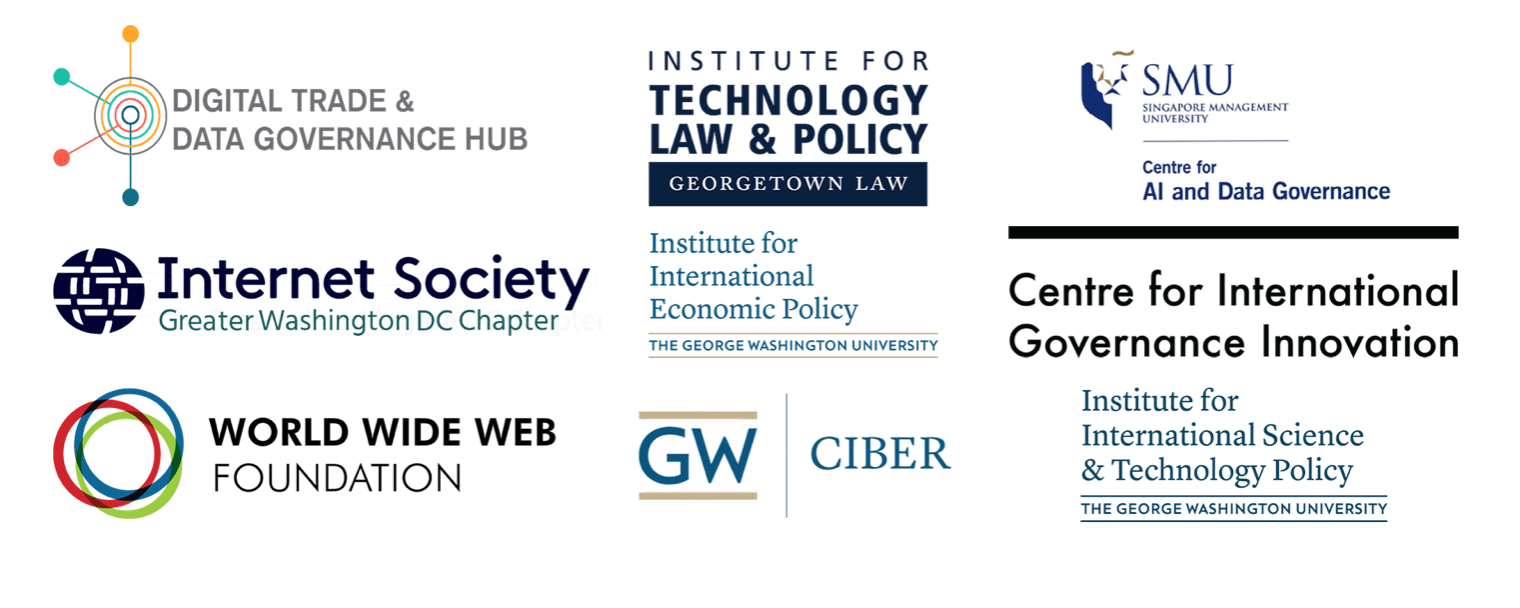
Elliott School features Nick Vonortas’ and International Science and Technology Policy MA students Brennan Hoban’s and Connor Rabb’s work on Cybersecurity!
Read the feature online or download the PDF.
Discover the landscape of far future worlds with Deep Time Reckoning
The first book from IISTP Assistant Research Professor Vincent lalenti.
ISTP Alum, Evan Michelson publishes new book: Philanthropy and the Future of Science and Technology
Michelson’s examination of science philanthropy is groundbreaking in its scope and, according to Cat Tully of the UK’s School of International Futures, “could not be more timely.”
What’s International Science and Technology Policy all about?
Who can better speak to the question than former Assistant Director for Federal Research and Development and Senior Advisor to the Director for the National Science and Technology Council at the White House Office of Science and Technology Policy (and ISTP alum!) Kei Koizumi. Watch his Bromley Event keynote lecture and Q&A to discover more.
Want to learn more about Science Diplomacy?
Check out the new article by IISTP Research Professor Al Teich and former IISTP Visiting Scholar Maria Moskovko of Lund University: “Science Diplomacy in Action: European Collaboration and US participation in Research Infrastructures,” published in the June issue of Science & Diplomacy.
Curious about blockchain?
Check out the World Bank report: “Analysing the Deployment of Blockchain and Distributed Ledger Technologies in the Financial Sector.” Co-authored by IISTP Director Nicholas Vonortas, the report looks at how blockchain and distributed ledger technologies (BDLTs) affected the European financial sector and beyond.
